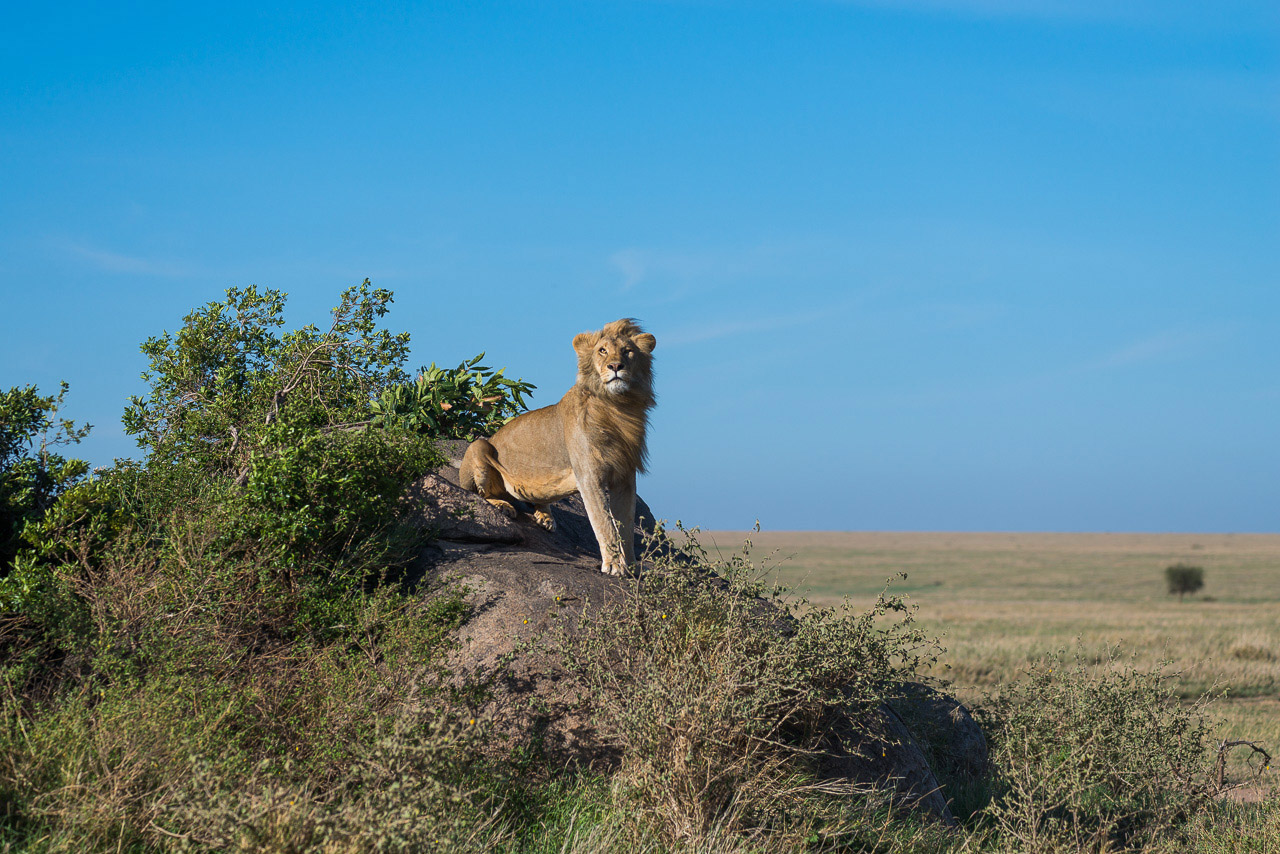

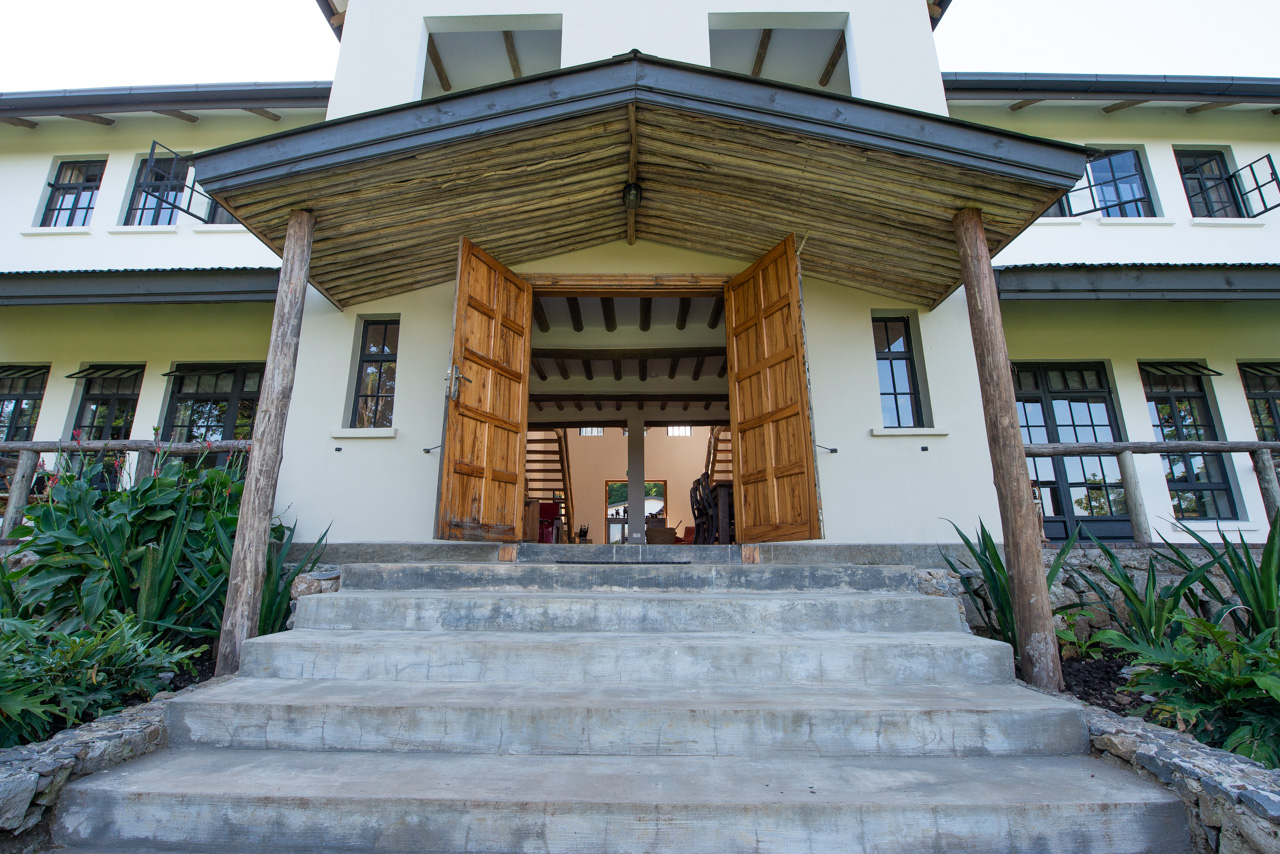
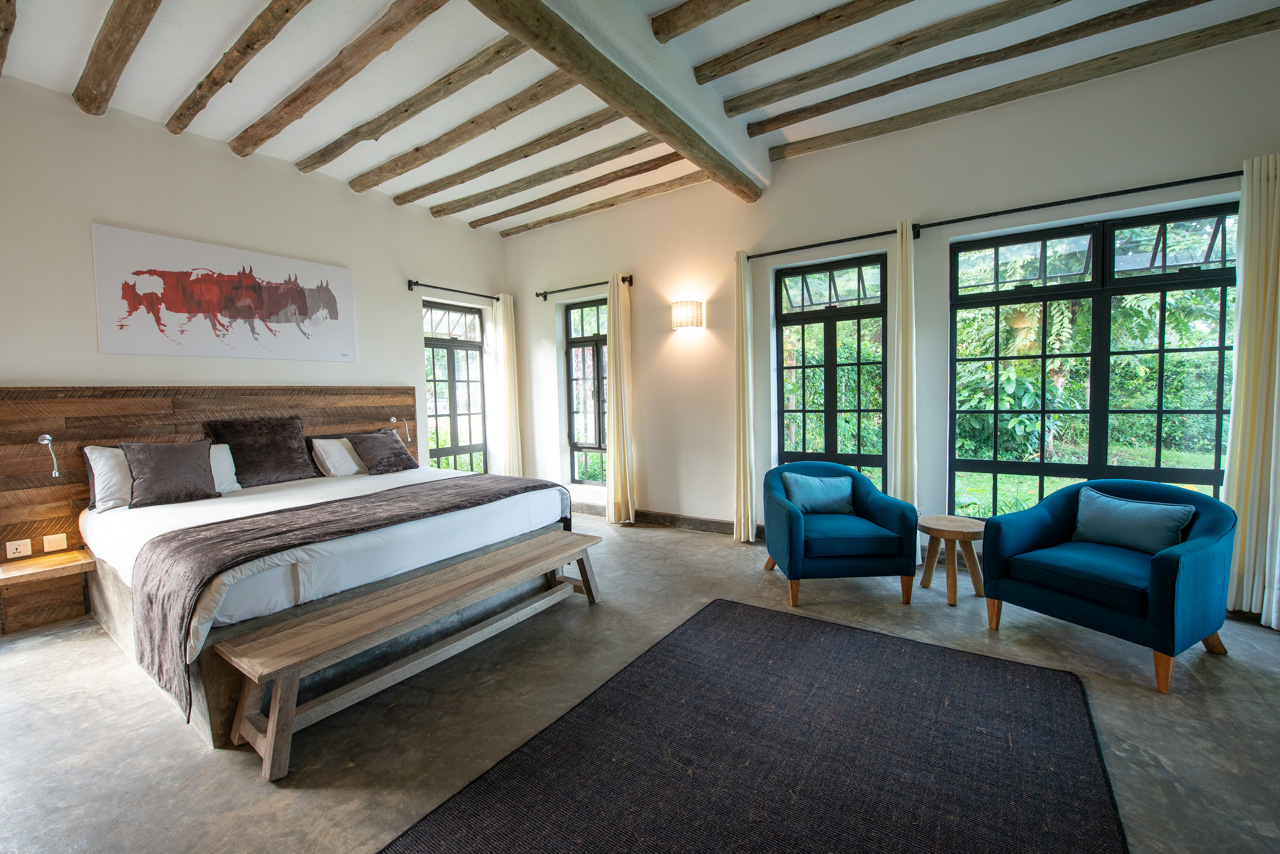
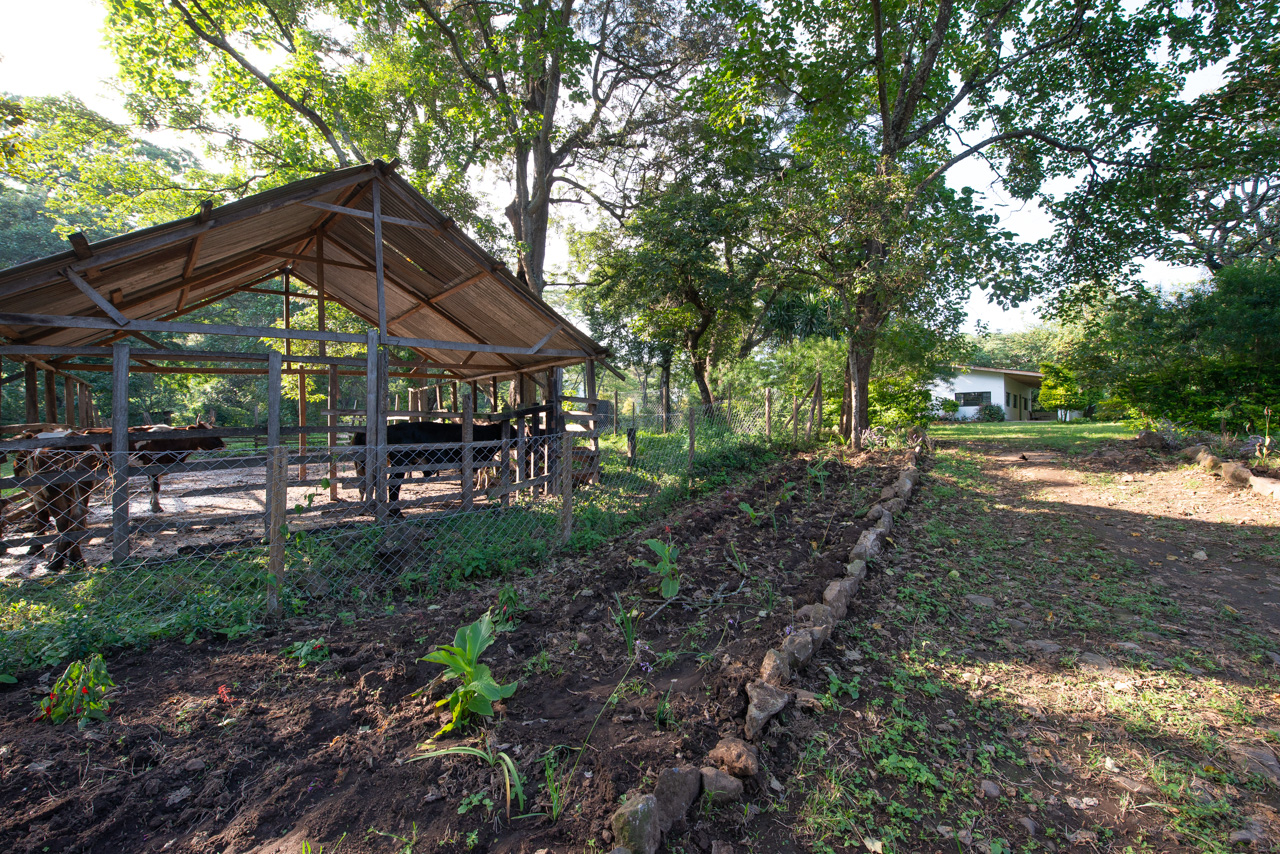
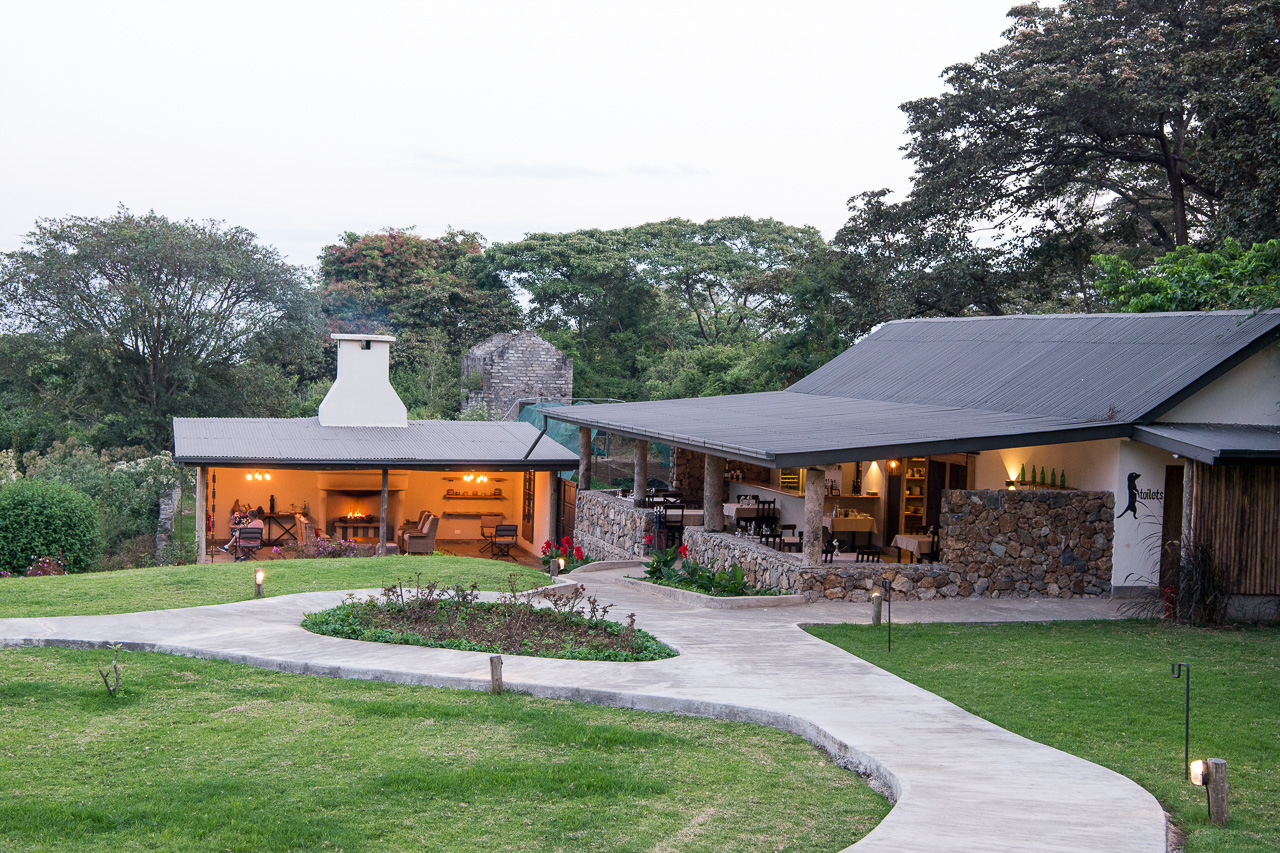
Accommodation
The six luxurious rooms and two family rooms of the Arusha Villa are set in a beautiful garden with Mount Meru and Mount Kilimanjaro in the background. The spacious rooms have en-suite bathrooms, king-size beds, a sitting area and a private balcony or terrace.
Arusha Villa was originally a coffee roastery. In the garden elements from this time are still recognizable, for example around the pool, where in earlier days the coffee beans were washed. The beautiful garden overlooking the countryside invites you to rest in the sun. With a little luck, you‘ll even spot a Colobus Monkey in the treetops.
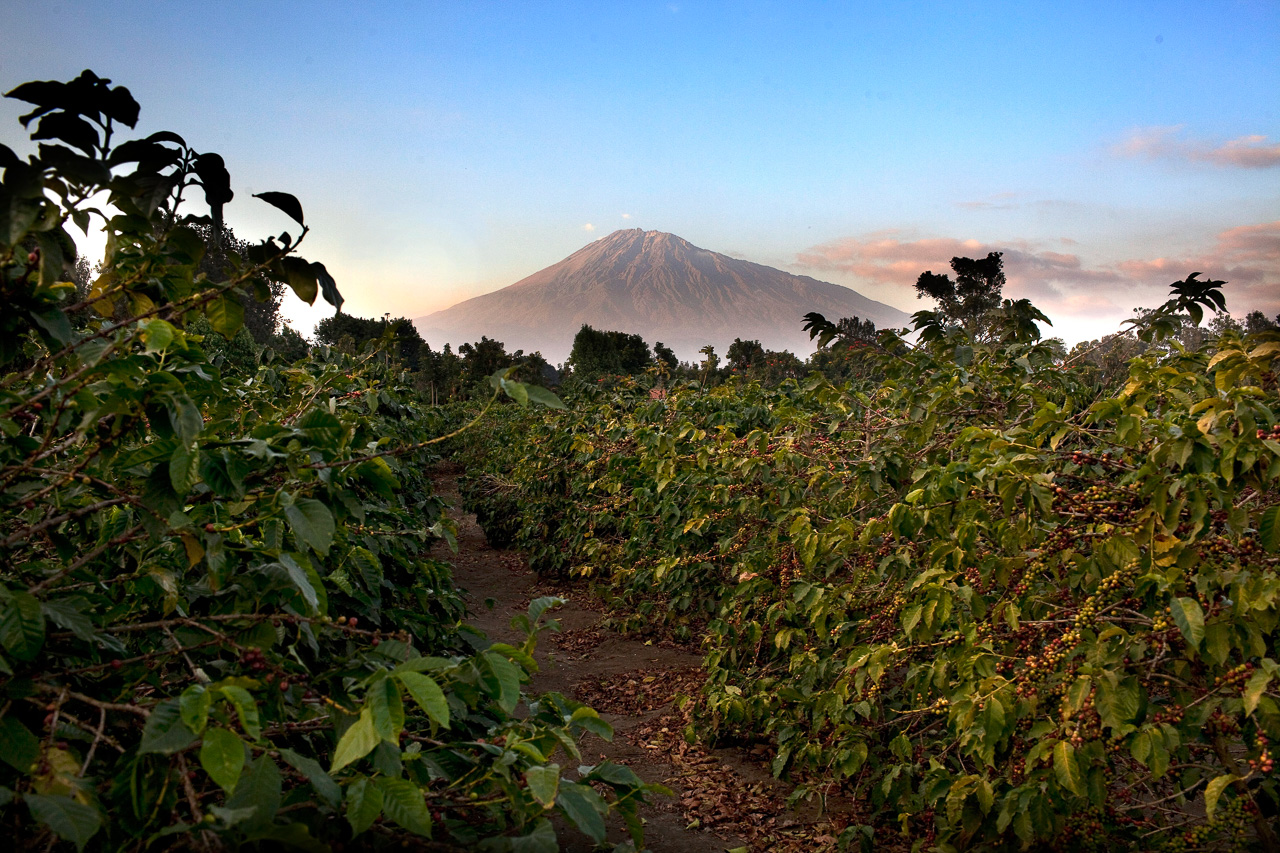
Most visitors spend one night here after arriving on their international flight before beginning their safari the next day. Kilimanjaro International Airport is located approximately one hours’ drive from Arusha on the road cmoing in from Moshi.
Arusha's most famous landmark is Mount Meru, a dormant volcano that rises more than 4,500 m out of the ground in the west. The Ngurdoto Crater is located on the other side of the park, and the Momella Lakes sit between.
Arusha itself has grown considerably in recent years and there are probably around 650,000 people living in the city. The population has increased tenfold since the 1970s! In addition to tourism, Arusha lives from the trade in coffee and agricultural products and also increasingly from the export of cut flowers. Arusha lies at an altitude of 1,400 meters above sea level and the climate is quite pleasant with an average temperature of around 25° Celsius.
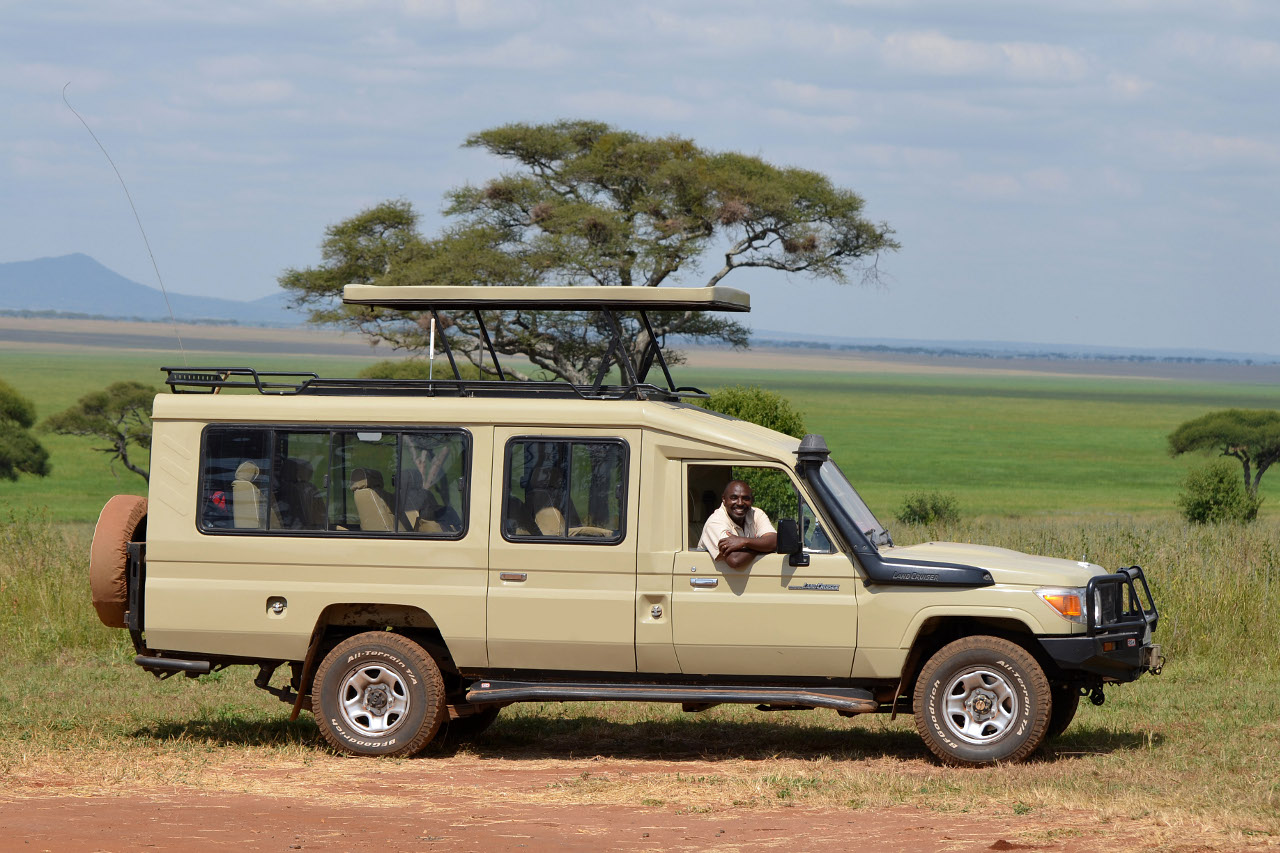
The comfortable Toyota LandCruiser 4 x 4 vehicles usually have six seats, a fridge with drinking water and a socket for charging camera equipment. The roof can be opened for game viewing - the classic safari in Tanzania.

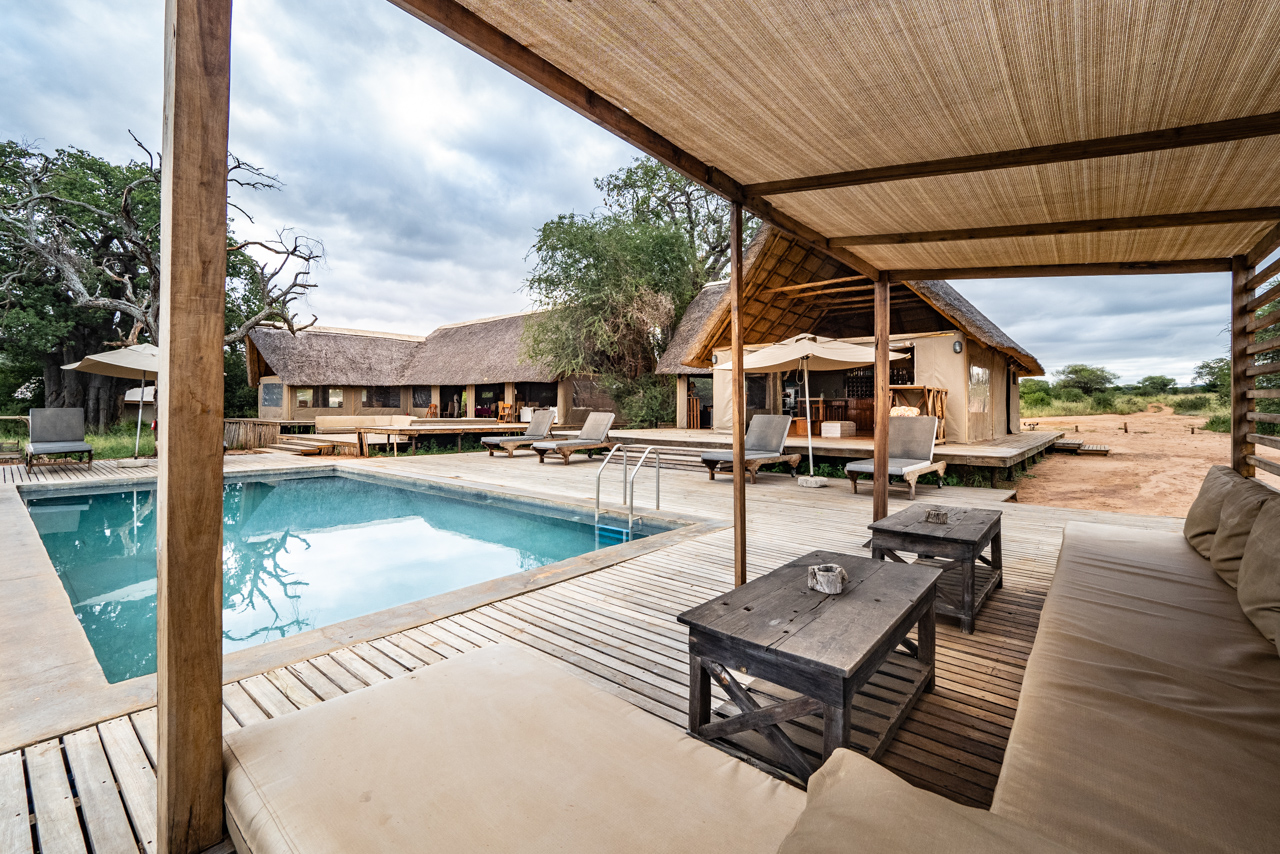
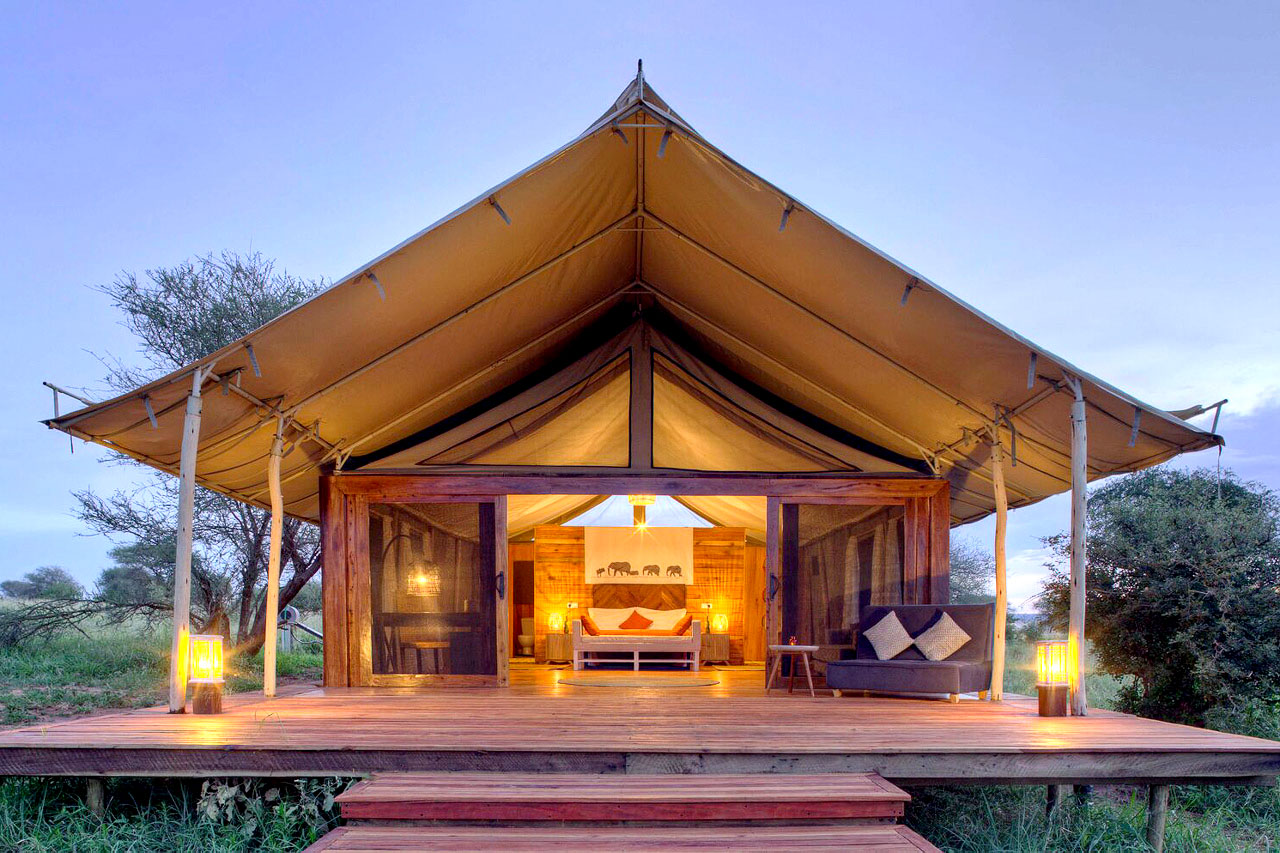
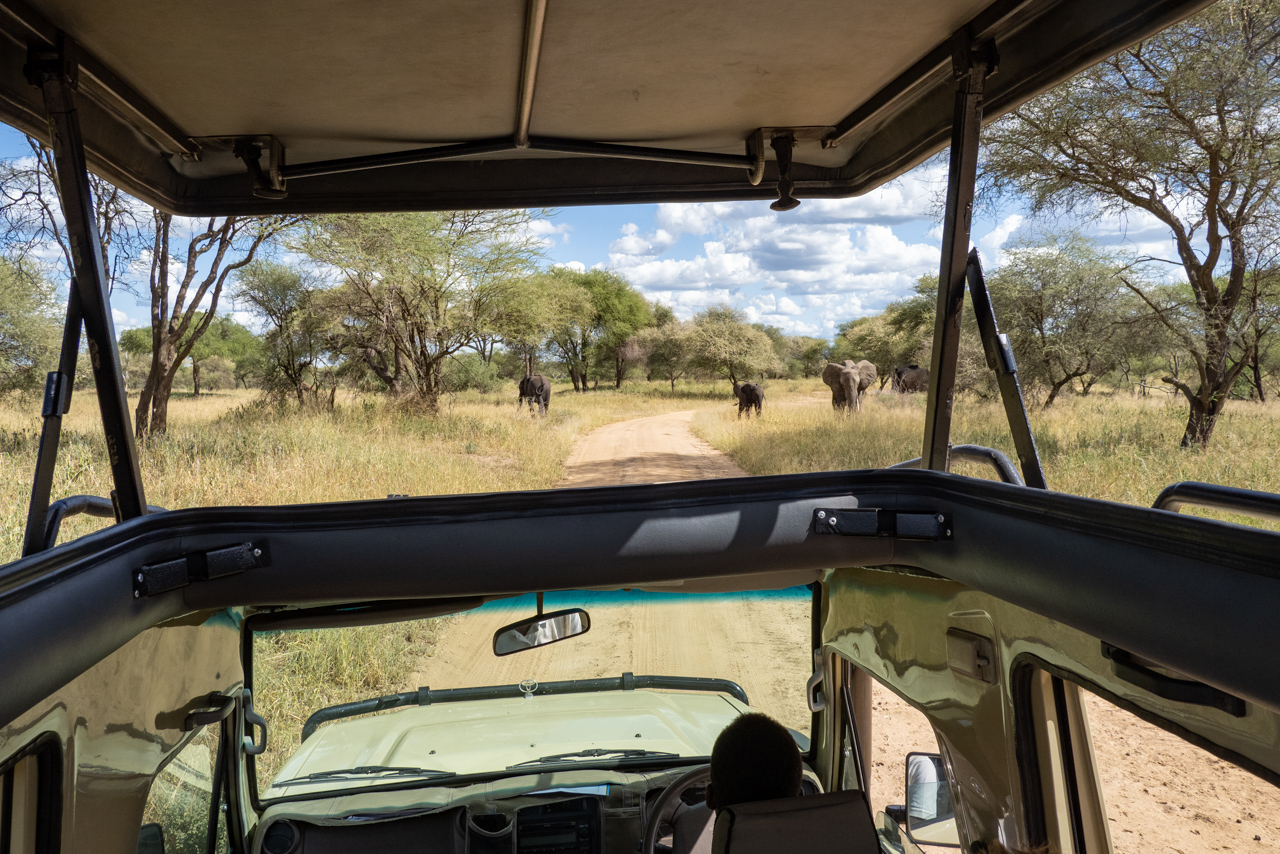
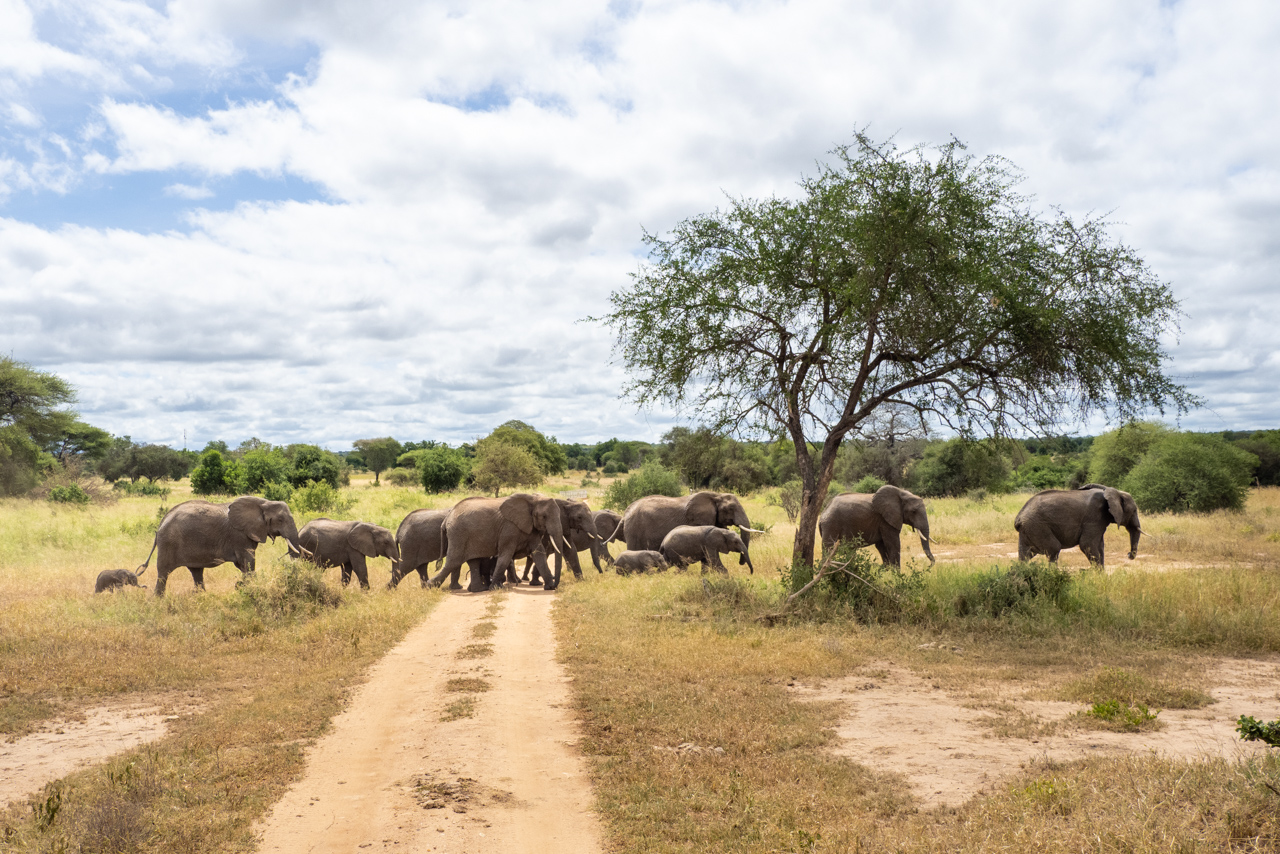
Accommodation
Tarangire Ndovu Lodge offers 15 tents, which are slightly elevated on wooden platforms. One of the tents is called the Honeymoon Tent and features an additional outdoor shower. 2 x two standard tents can be connected to form two family rooms with two bedrooms each. Each tent is 20 metres long and 8 metres wide and offers enough space for a beautiful double bed, lounge chair, desk and en-suite bathroom with dressing room. Sliding doors open onto the covered balcony, from which a small staircase leads to the path connecting the rooms to the main building.
The main building comprises a lounge with bar, the dining tent, the spa and a souvenir shop. The large deck in front of the lodge leads to the pool and fire pit. The lodge is situated in the centre of Tarangire National Park and is open all year round.
Tarangire Ndovu is situated inside the National Park, in the central part of Tarangire National Park. The location of the camp provides guests with the unique opportunity to witness wildlife and explore the natural beauty of Tarangire National Park right from the start of their safari. Camps that are located outside the park need to pass the main gate each and every time they access the park, which minors the safari experience in our opinion.
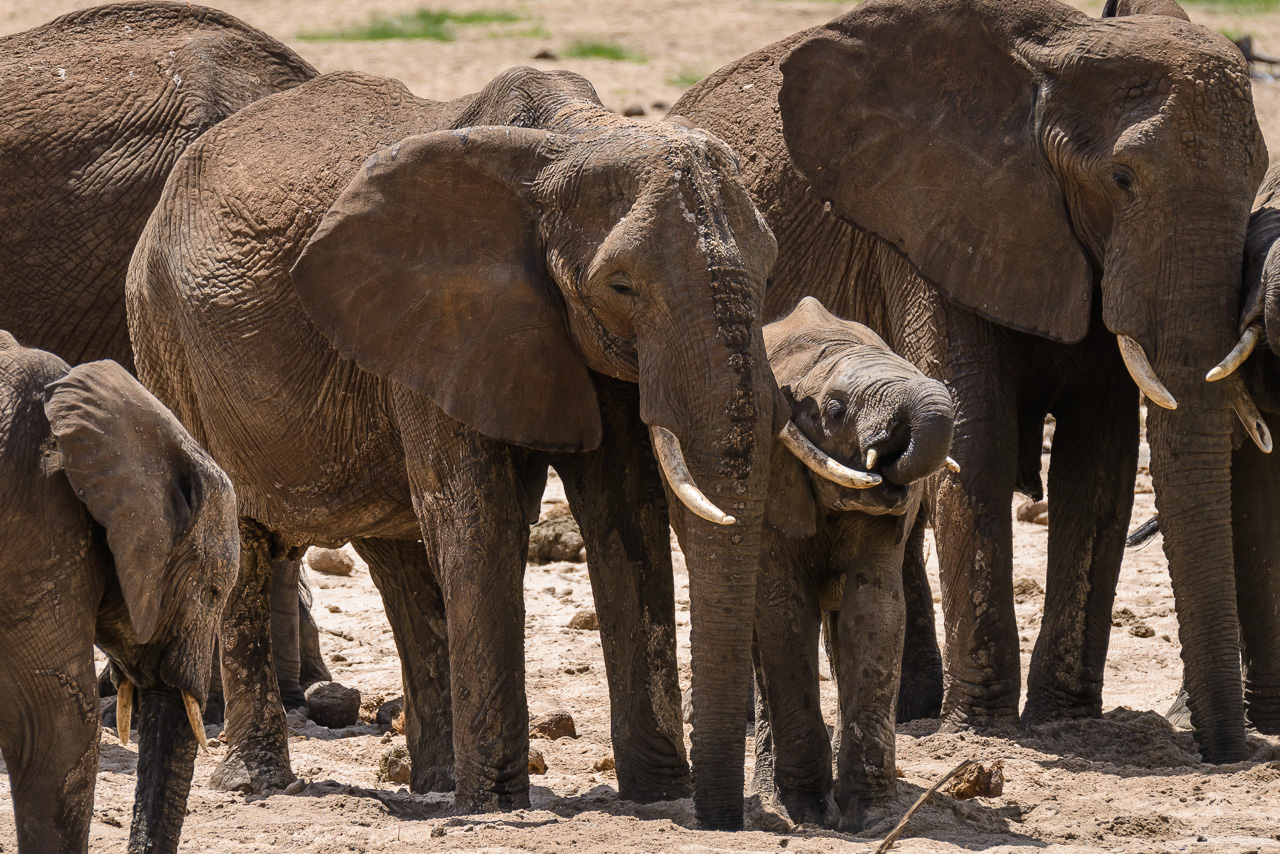
Covering more than 2,600 km², Tarangire National Park comprises a well-frequented northern part and a relatively remote southern part, which is made up of alluvial plains during the wet season, giving way to large grassy areas during the dry season. Wildlife concentrations are fantastic from June to October, when, unable to find water elsewhere, animals from far afield gather at the Tarangire River. Wildlife is naturally more difficult to find during the wet season. Tarangire is best known for its large herds of elephant, and offers a very rounded safari experience when combined with the Serengeti.
Tarangire is a two-hour drive from Arusha. We recommend the small, intimate camps located within the park itself, as these offer direct access to the wildlife.

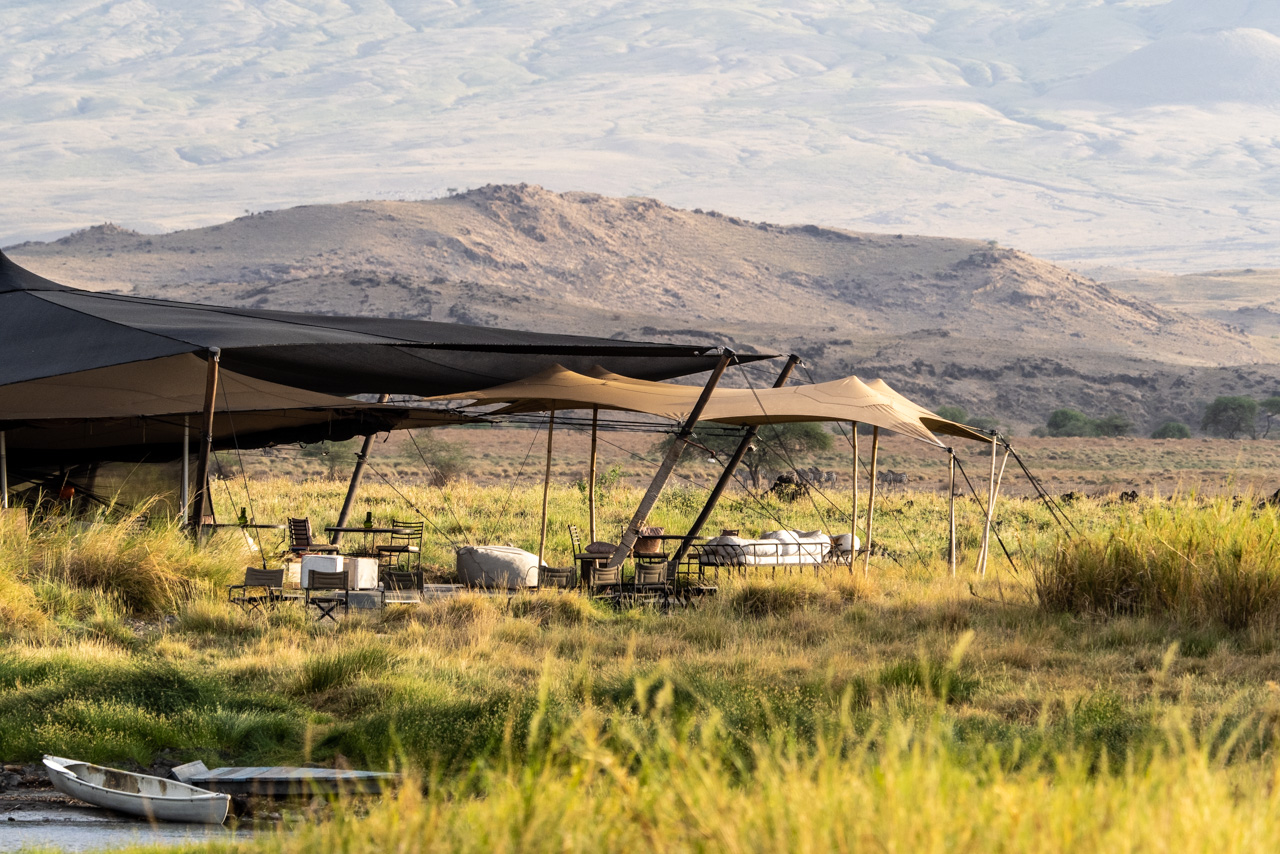
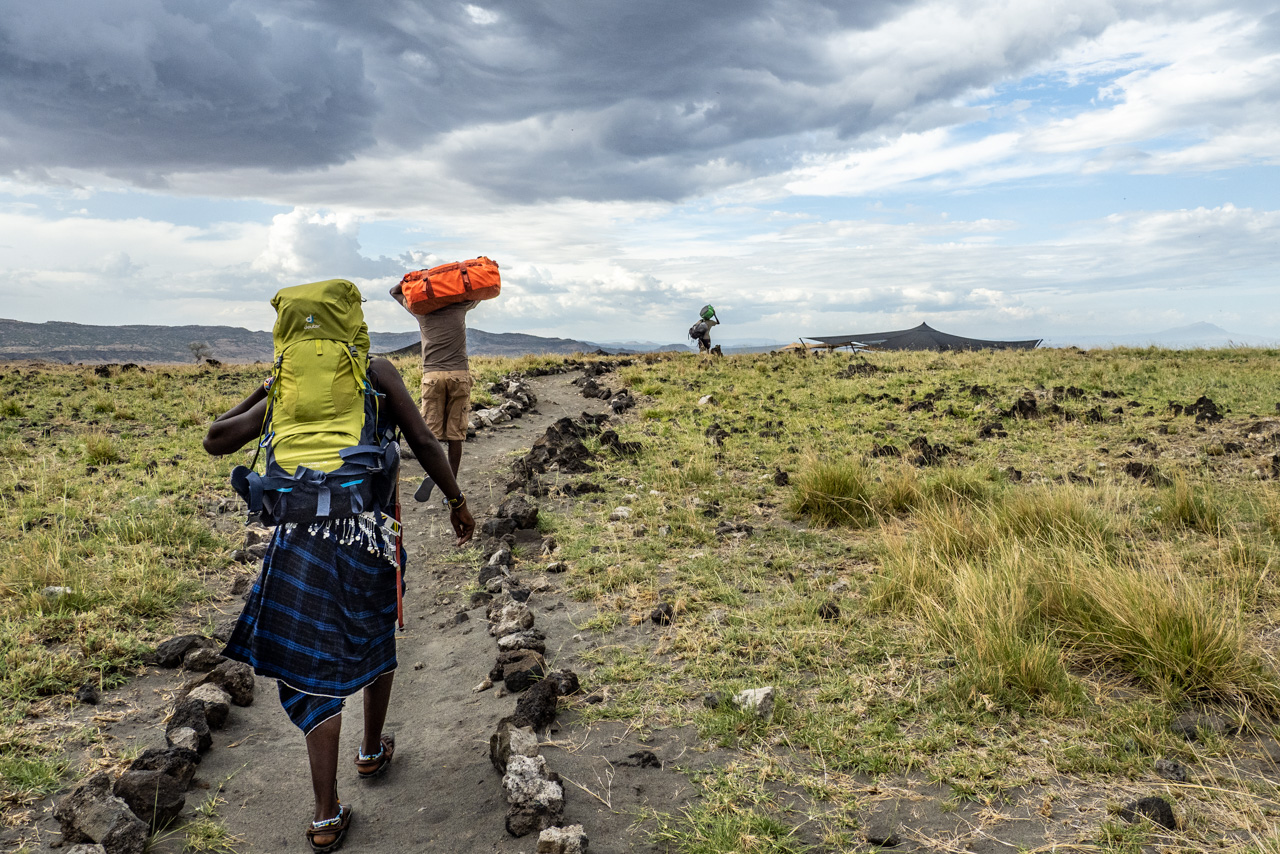
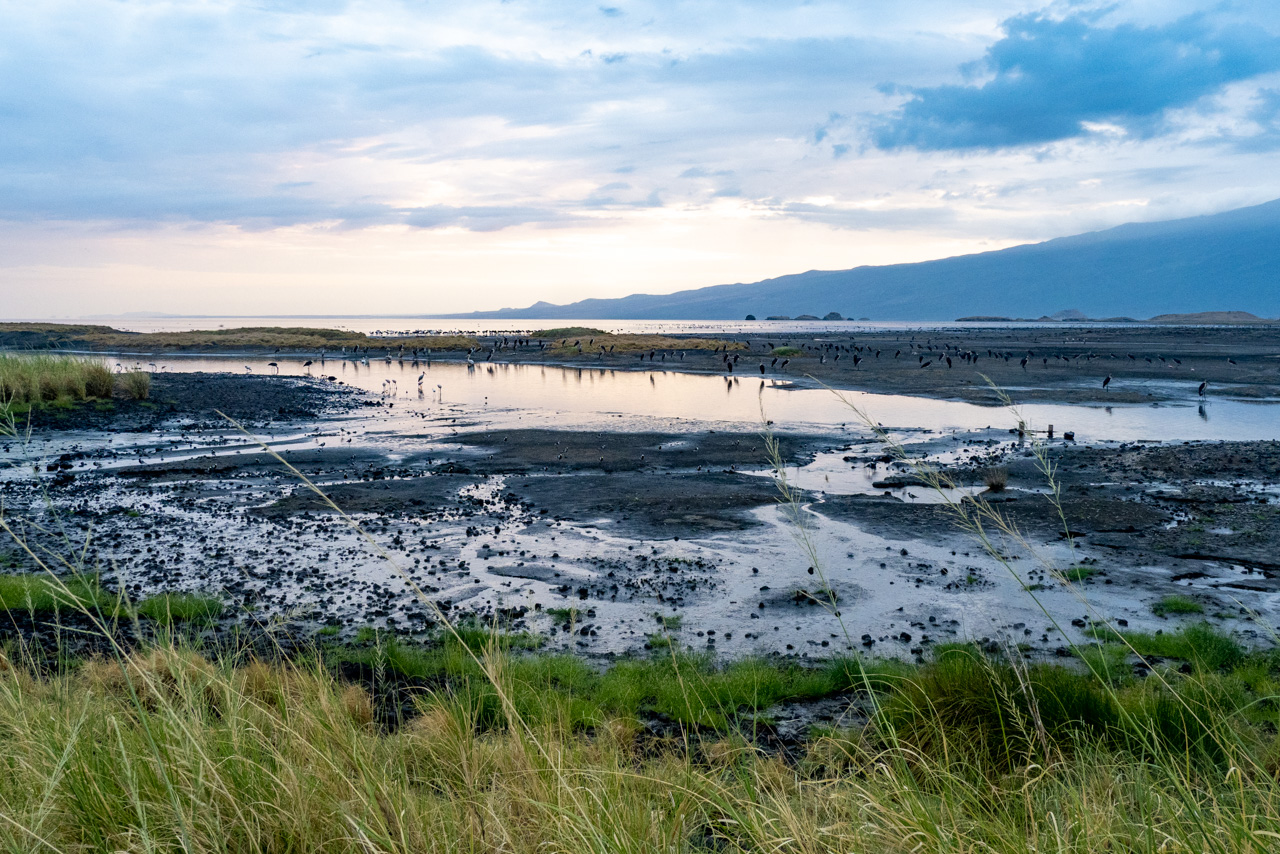
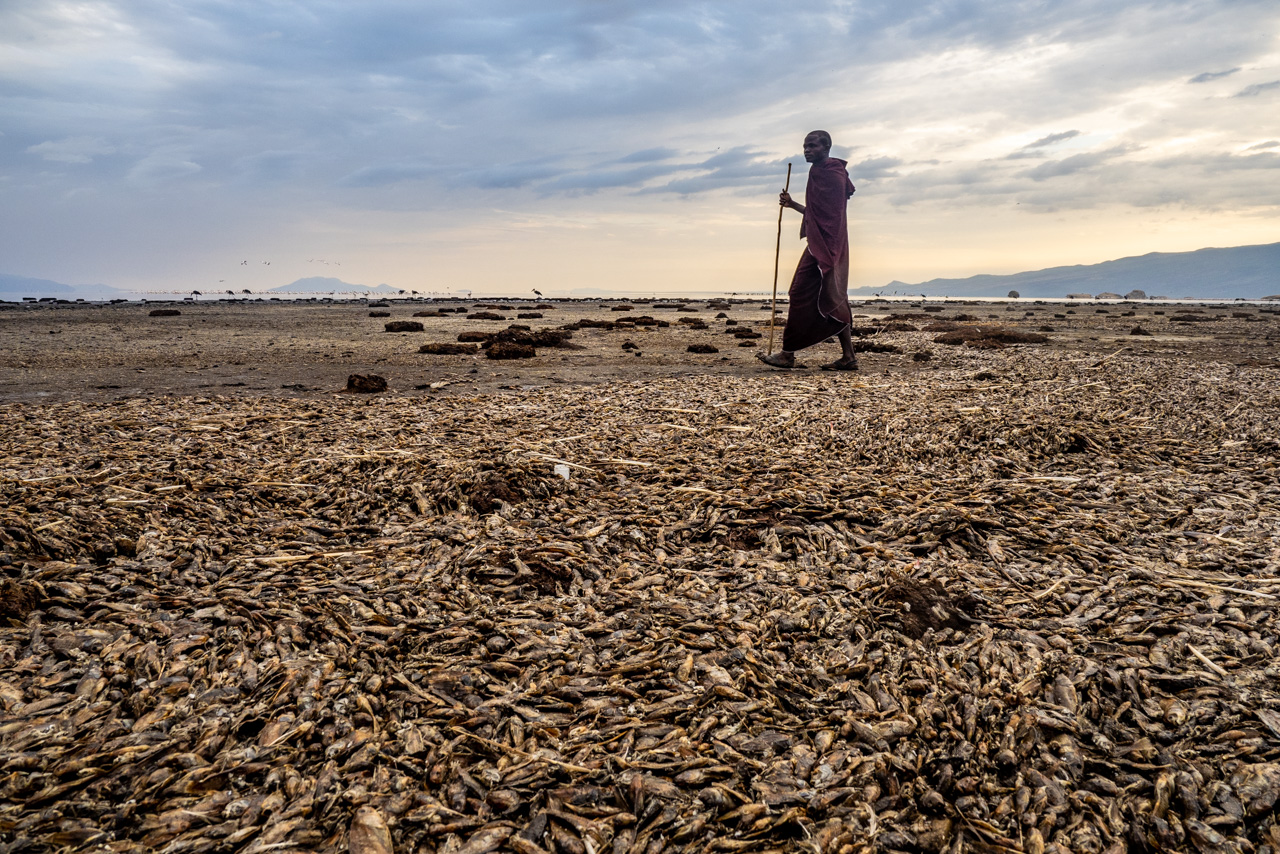
Accommodation
Lake Natron Camp is located right on the edge of Lake Natron on a strech of open grass land, with great views of Ol Doinyo Lengai volcano. There is a little stream of water that flows into Lake Natron, just some 50m from camp. A great place to relax and cool off your feet, especially if you have returned from a longer hike.
The camp offers ten sleeping tents, one common tent with the bar, dining and lounge area. The camouflaged Bedu shade nets were especially designed to keep the guest rooms cool during the day and protect them from the occasional strong winds. Each tent is furnished with full size beds, quality linen and blankets, tables and chairs and has its own running water, ensuite shower and compost toilet. This is certainly not a luxury camp and the exposure to nature can sometimes be a bit challenging, but the location and the views of the volcanoe are fantastic.
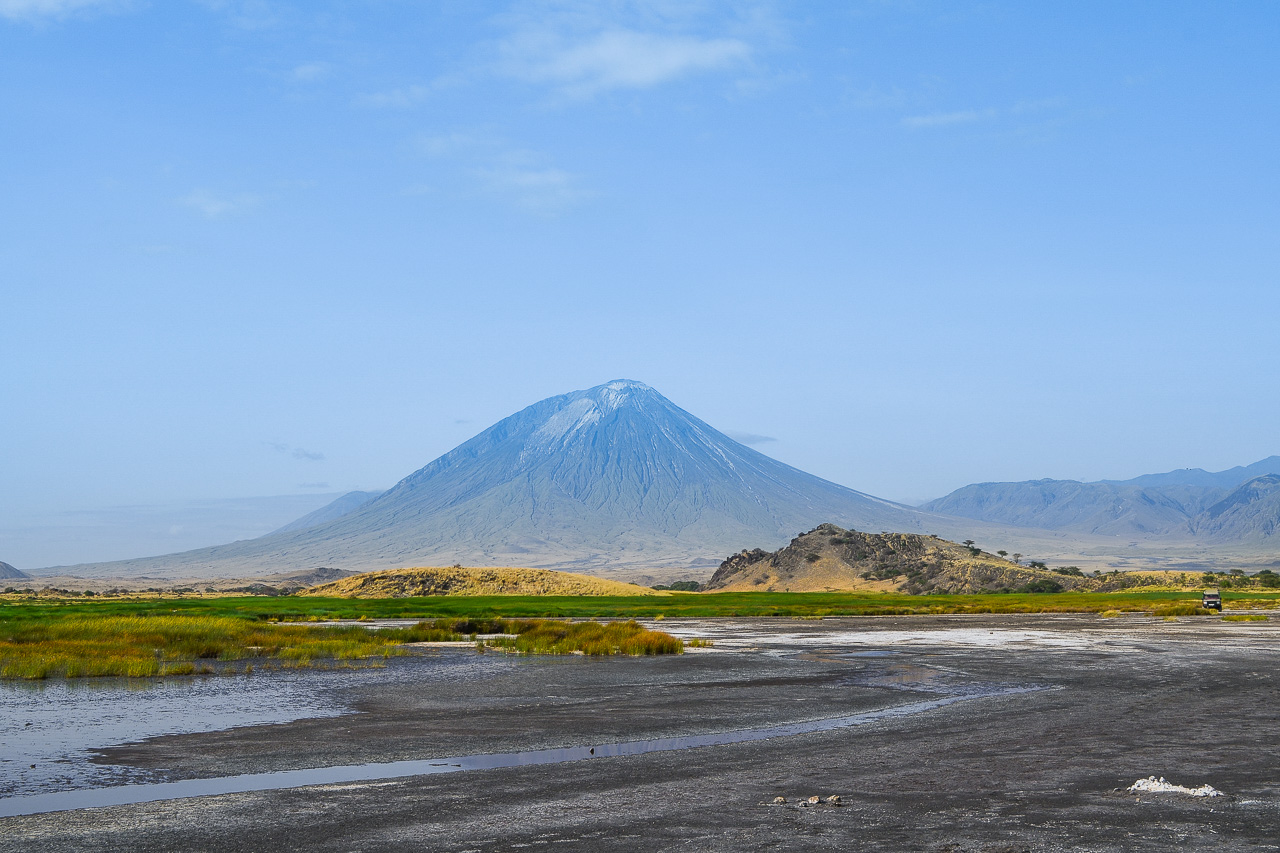
The Great Rift Valley stretches from northern Ethiopia to Malawi / Mozambique. Typical signs that the earth’s tectonic plates are drifting apart include abrupt escarpments and volcanic activity. The Ol Doinyo Lengai volcano is the last remaining active volcano in Tanzania. It explodes every couple of years and spews large amounts of soda (sodium carbonate) down its steep cliffs. This is then washed into Lake Natron by rainwater.
The lake is situated at the lowest part of East Africa’s Rift Valley, at a height of approx. 600 m. The hot climate causes lots of water to evaporate, making Lake Natron extremely alkaline. This in turn provides ideal conditions for algae and plankton to grow, making the lake an important breeding ground for flamingo, which live in this harsh habitat.

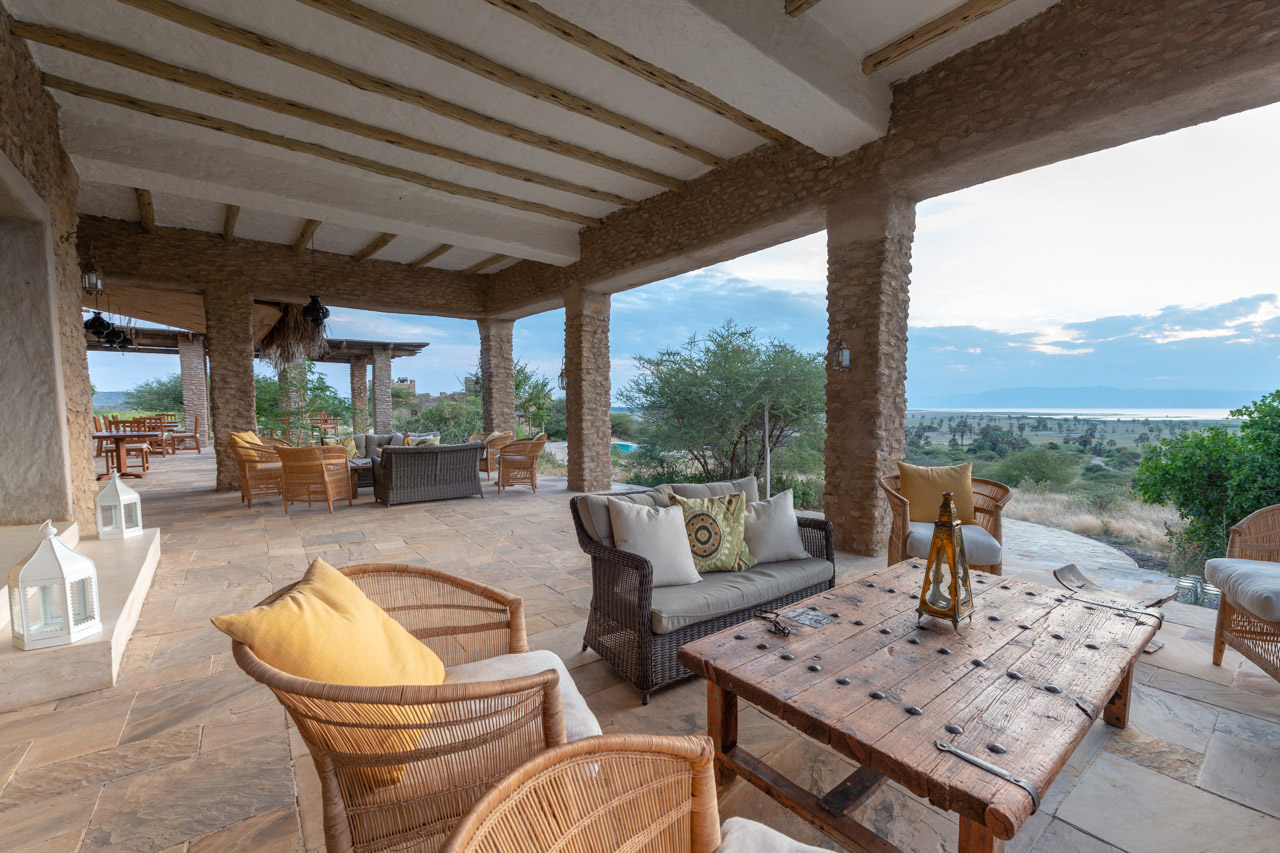
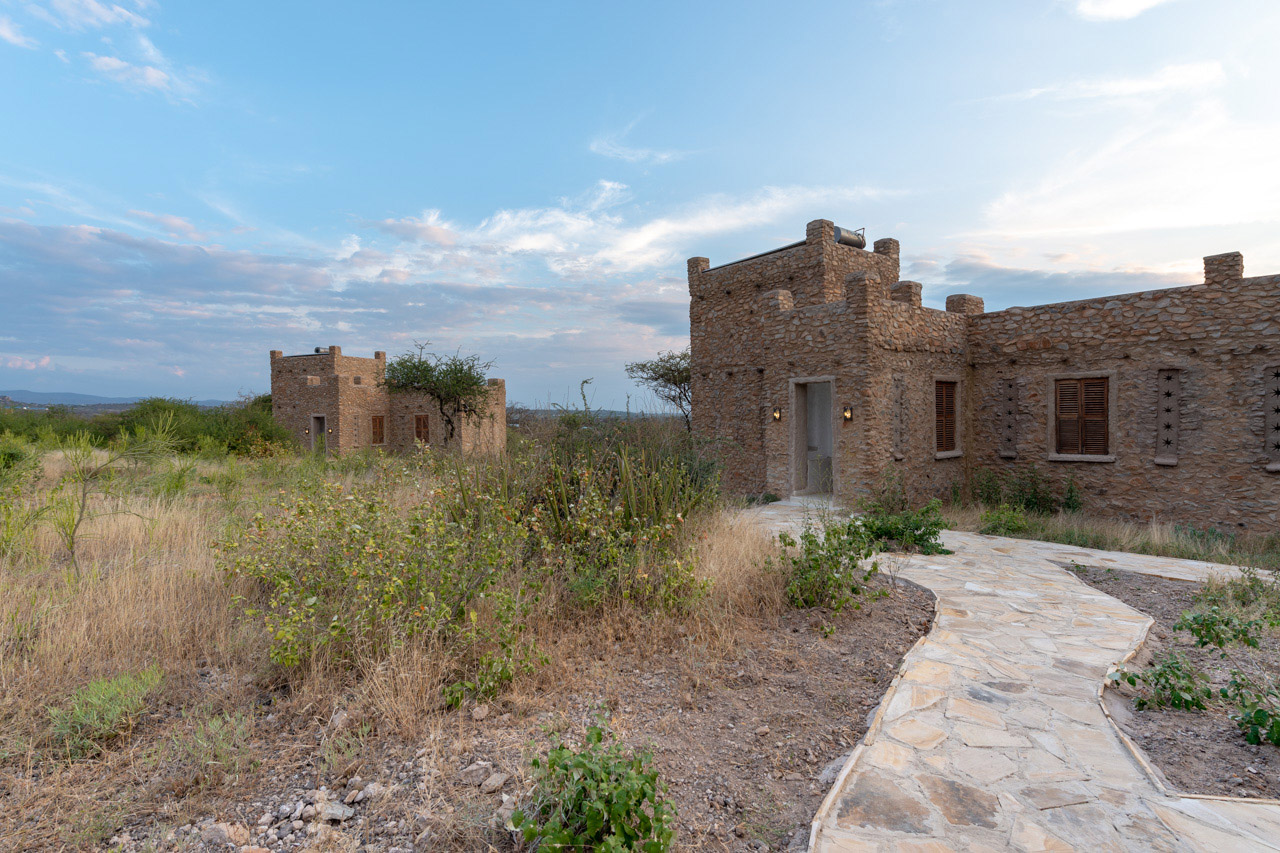
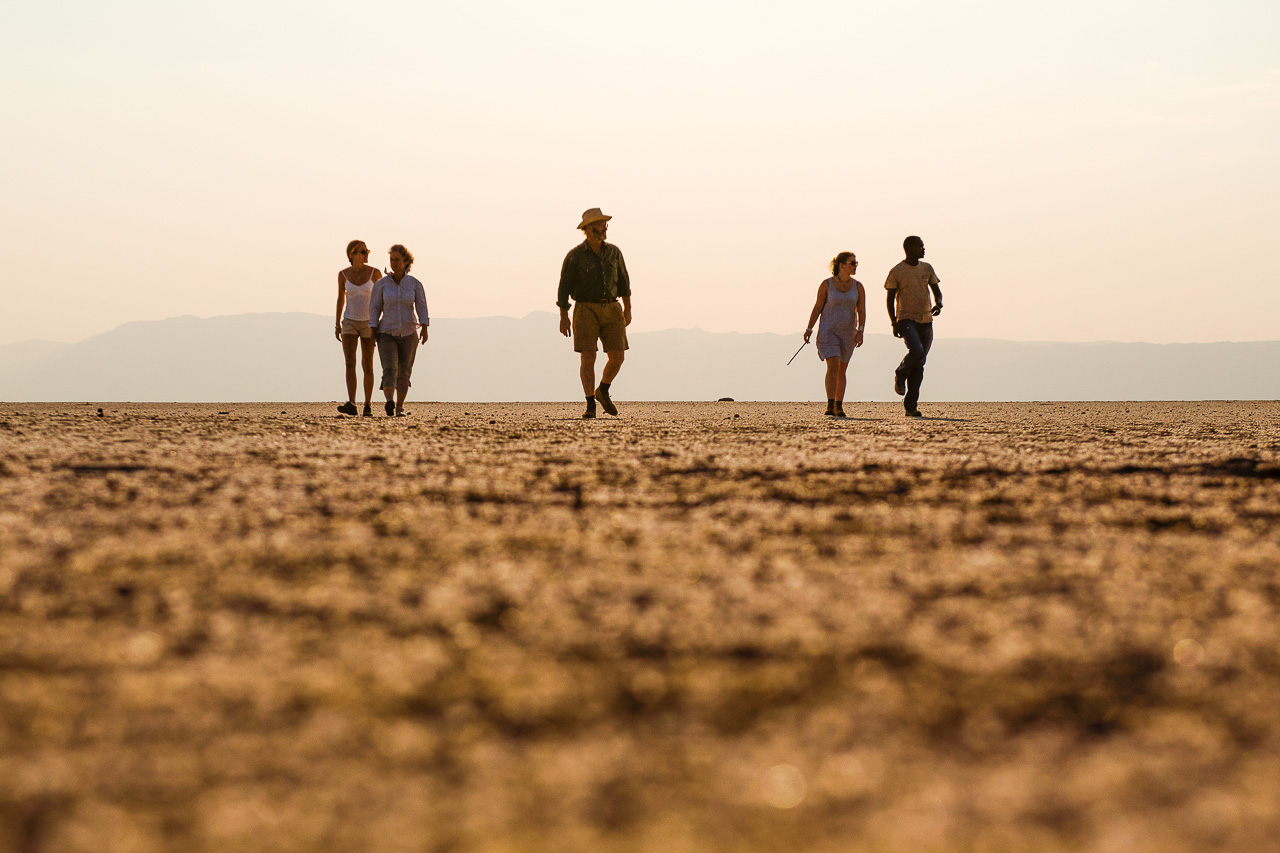
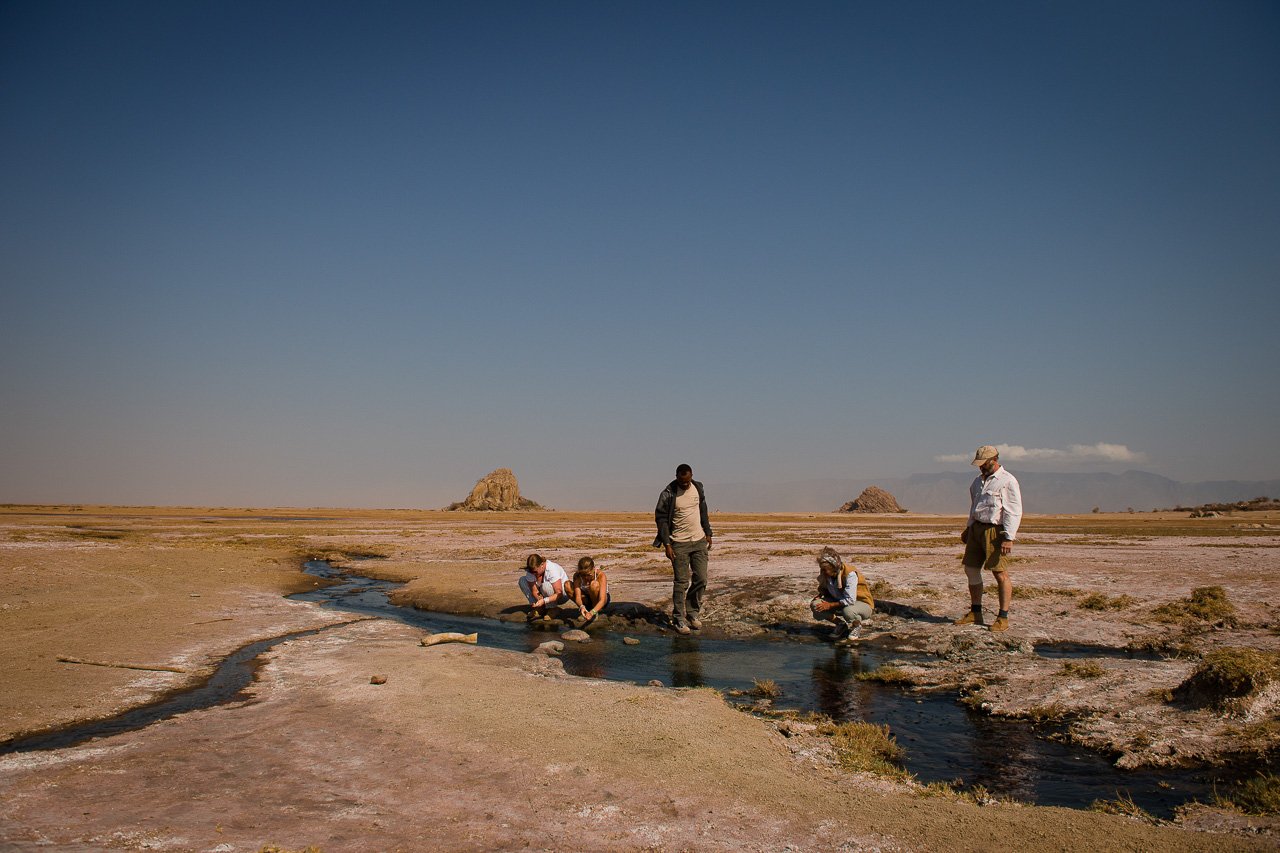
Accommodation Ziwani Lodge is located on the shores of Lake Eyasi and offers stunning views over the seasonal soda lake. The lodge offers interactions with the local tribes and is a fabulous extension to a safari in Northern Tanzania.
The seven stone cottages are built on both sides of the main building. One of the cottages is a family cottage with space for two adults and two children. All cottages have en-suite bath rooms and a large verandah. In front of the main building there is a swimming pool.
It's about 3 1/2 hours total from Arusha; from the turn off at Karatu it takes about 1.5 hours to get to the camp.
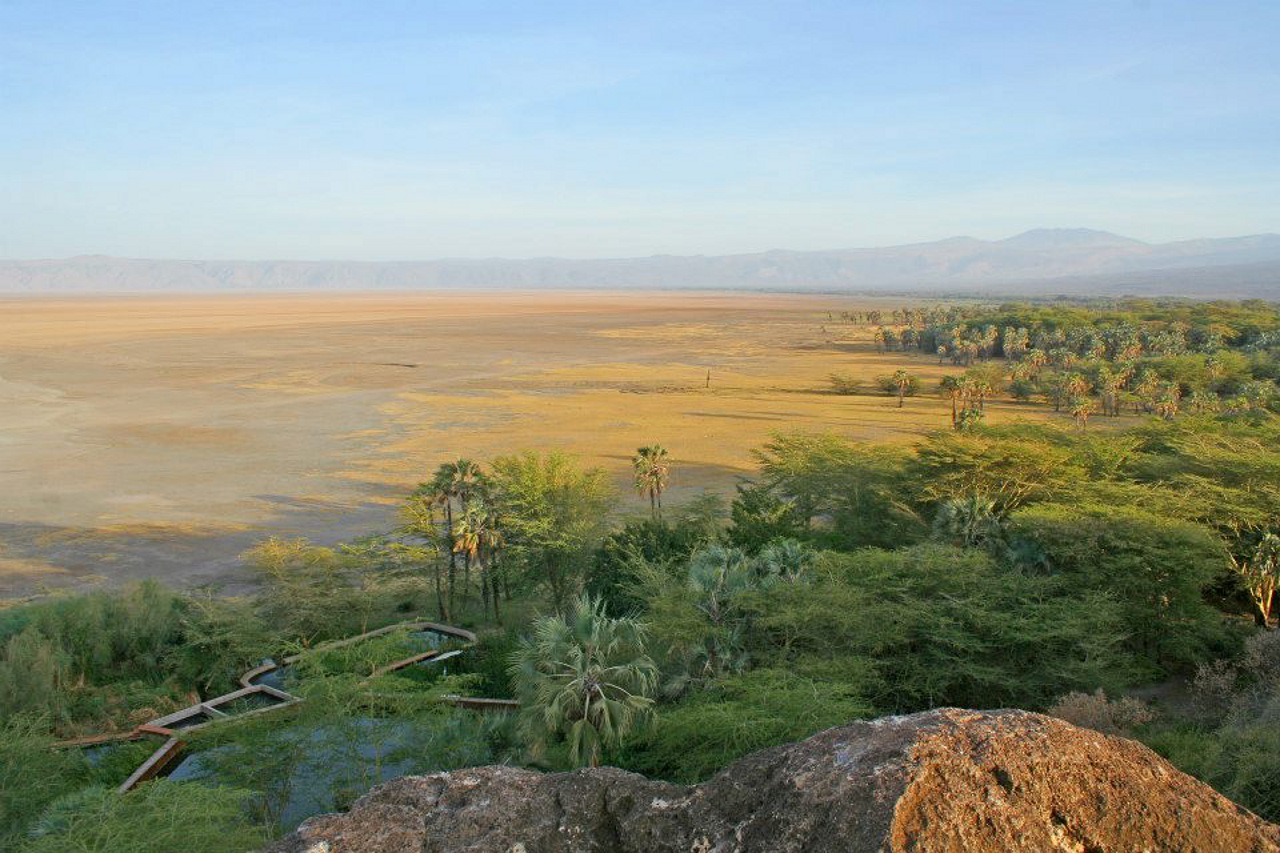
Situated two hours’ drive south of Karatu, Lake Eyasi offers an alternative cultural experience. The Hadzabe Bushmen live very simple and traditional lives, using only stone tools until very recently. The Hadzabe have neither fields nor cattle; they have no laws and no calendar and are among the last people on the earth living as hunter-gatherers – as their ancestors did 10’000 years ago.
Living from hand to mouth, the Hadzabe people own very little. If they’re hungry, the men get up and search for honey or go hunting for baboon, bird, zebra wildebeest and anything else they can find; the women collect berries and fruit. The Hadzabe are the only people in Tanzania to enjoy special status when it comes to tax – they don’t have to pay any. Unfortunately, the Hadzabe population is gradually diminishing, and there are only around 700 left living around Lake Eyasi. Their habitat is also dwindling, mainly due to the activities of the pastoral Datoga people.
The Datoga people are herdsmen and, not unlike the Maasai, cows are their most important possessions. The Datoga people need lots of land for their cattle; several have even settled and now cultivate fields in places that were once hunting grounds for the Hadzabe.
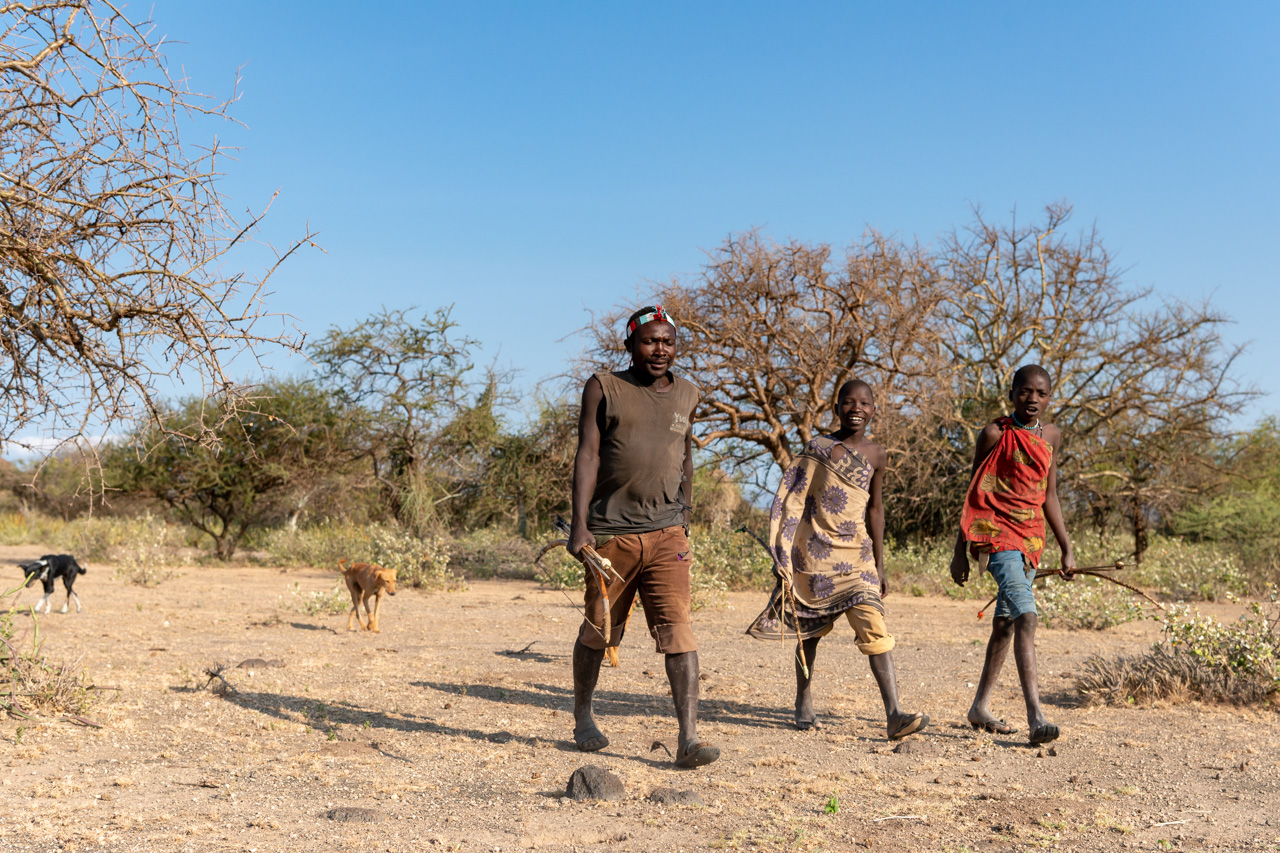
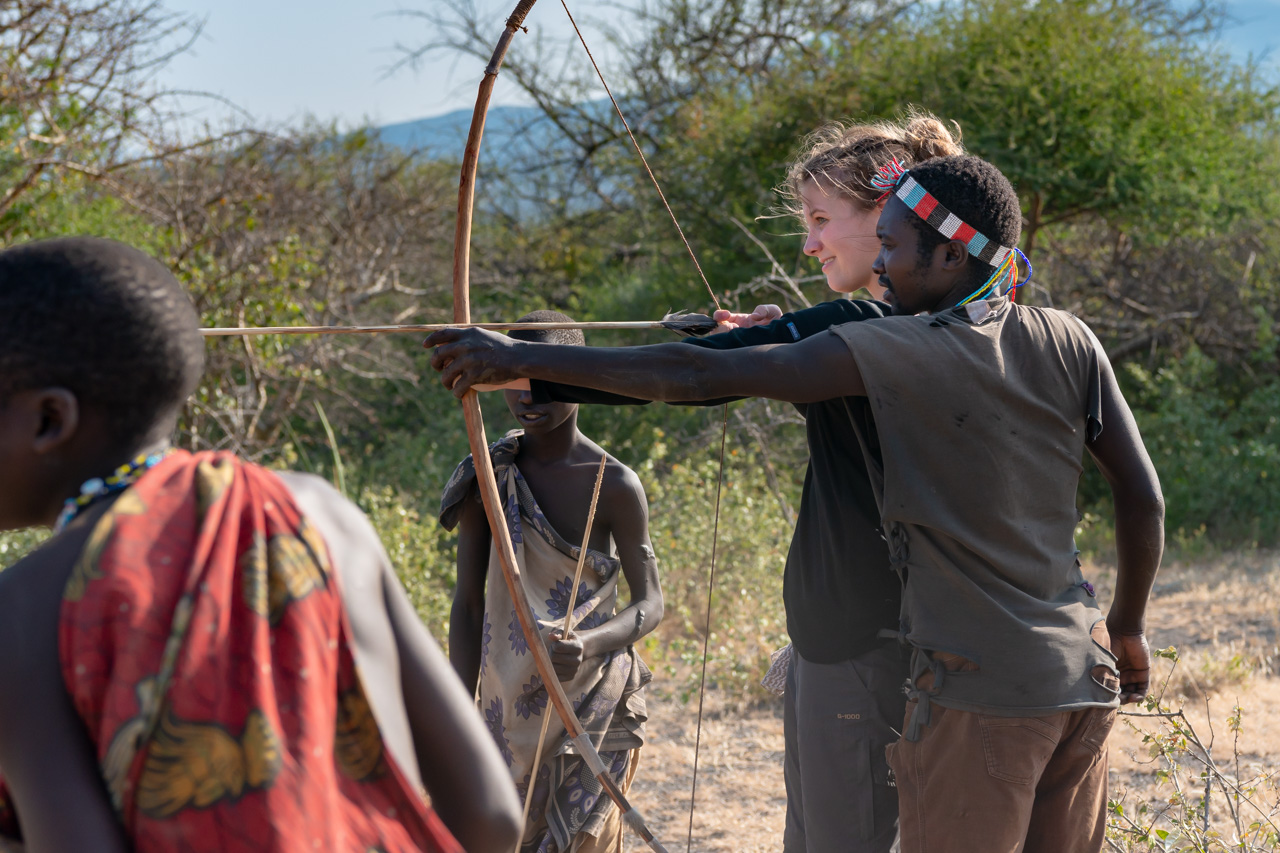
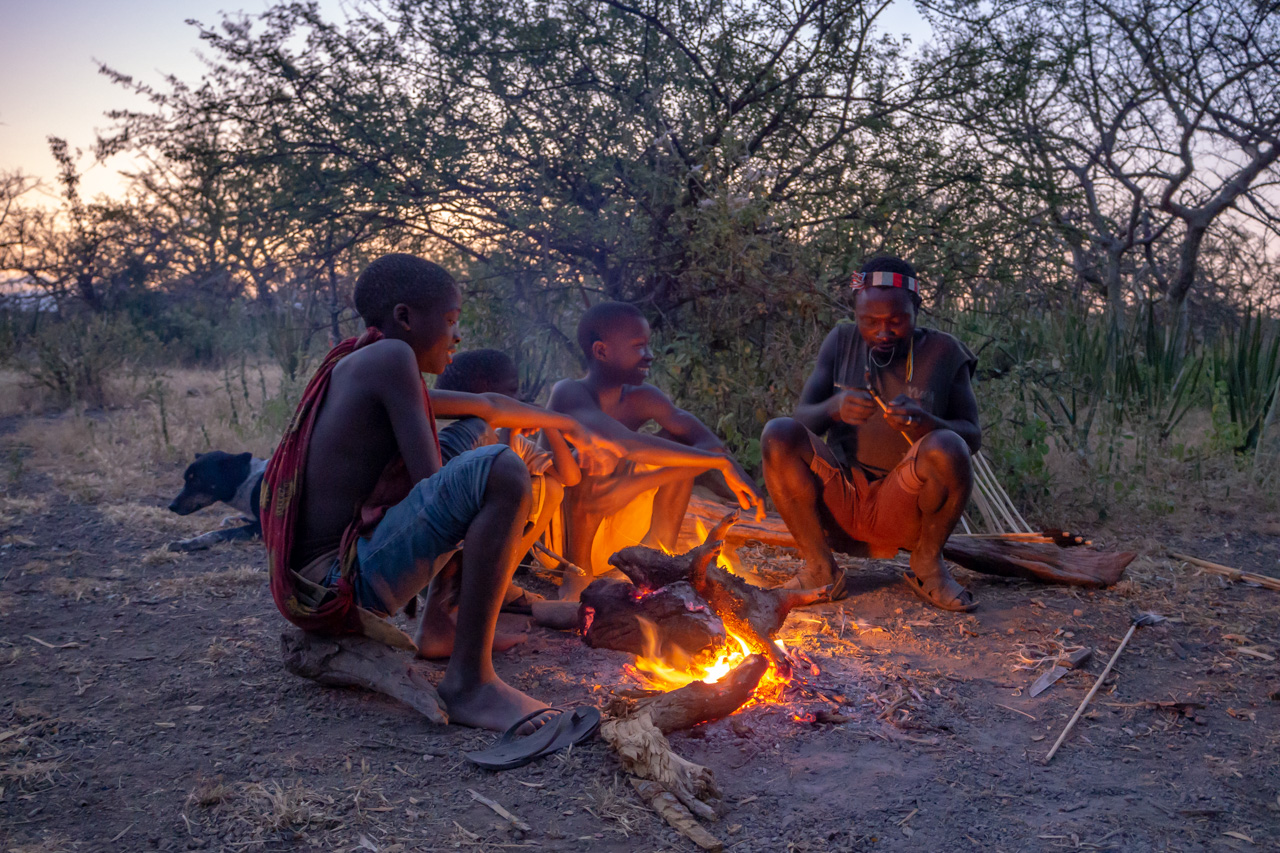
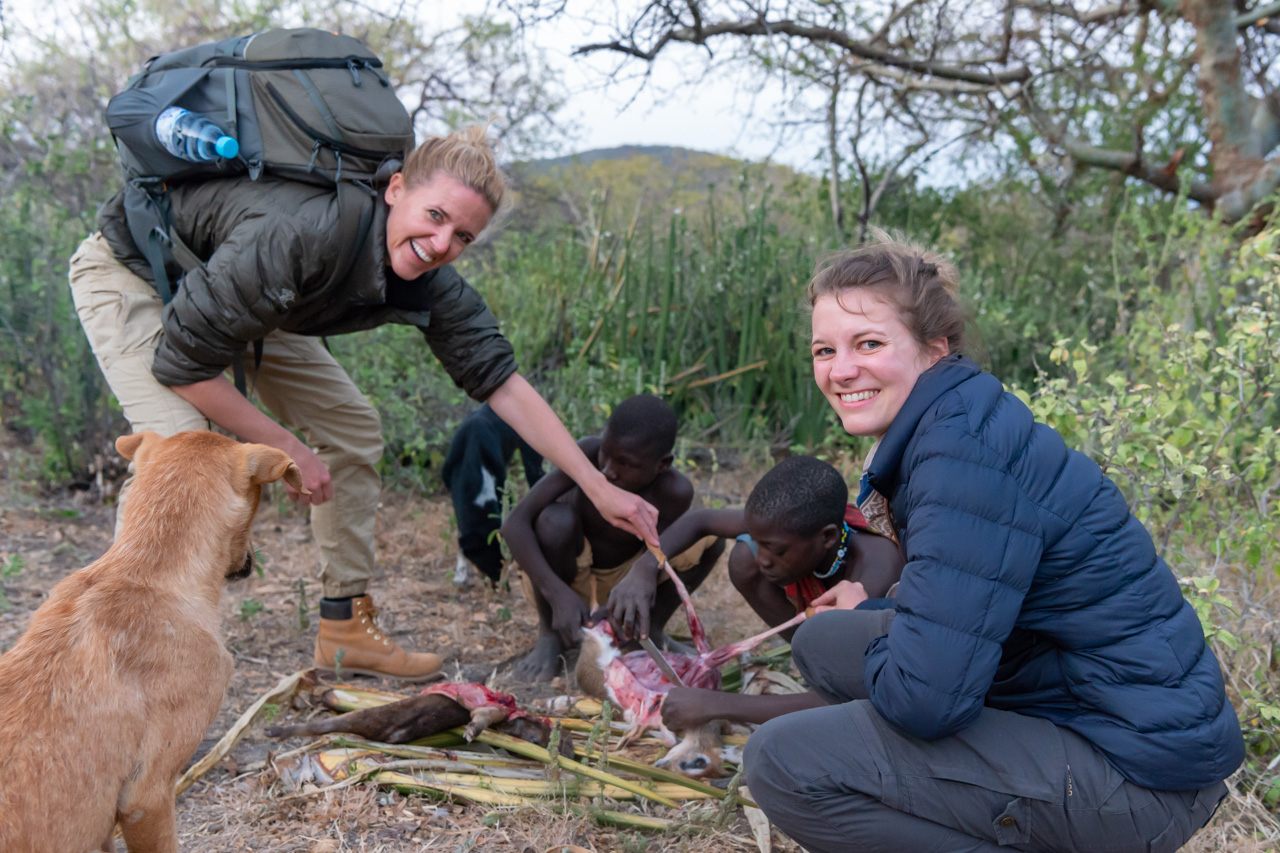
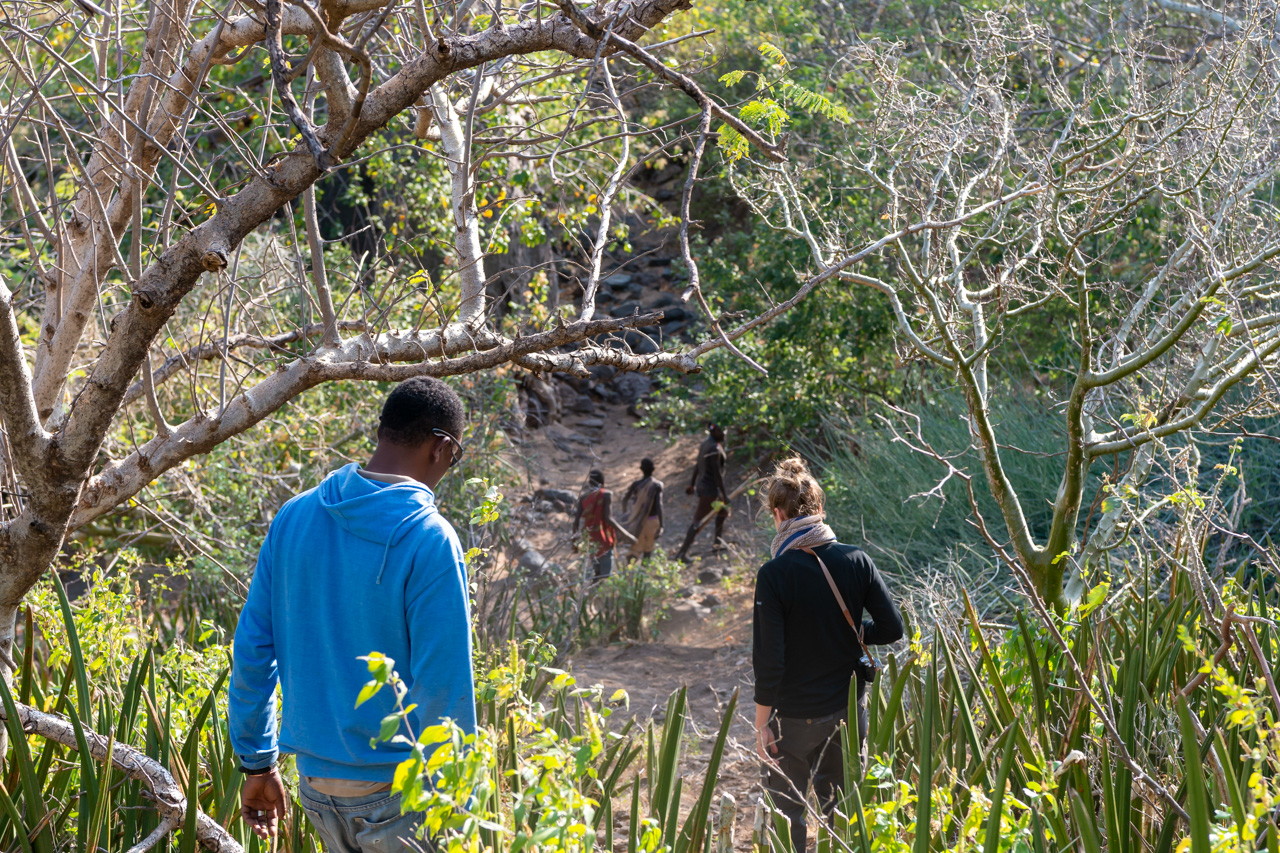
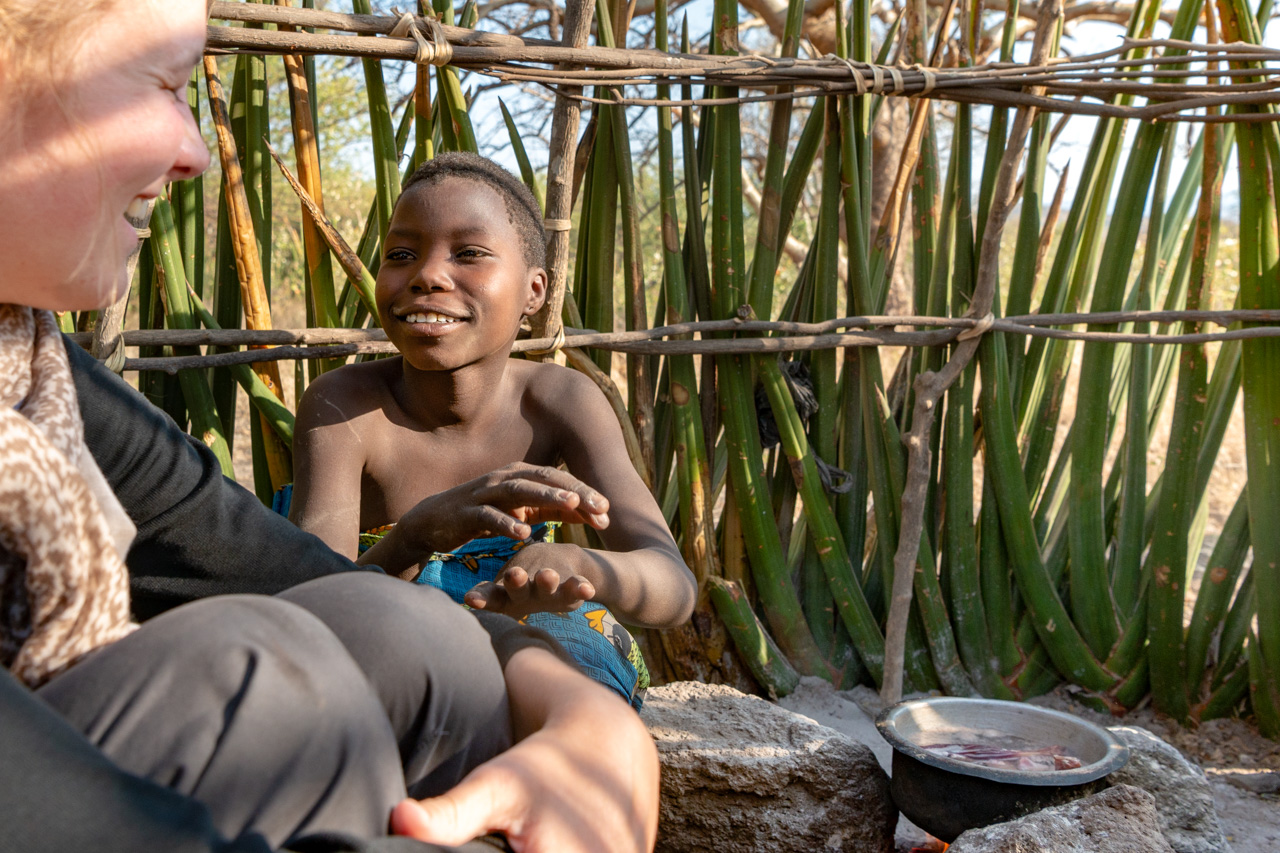
You visit the Hadzabe in the early morning and with a bit of luck the Hadzabe decide to go hunting in the course of the day. You will be invited to participate in the hunt.
br> Look forward to a unique adventure!
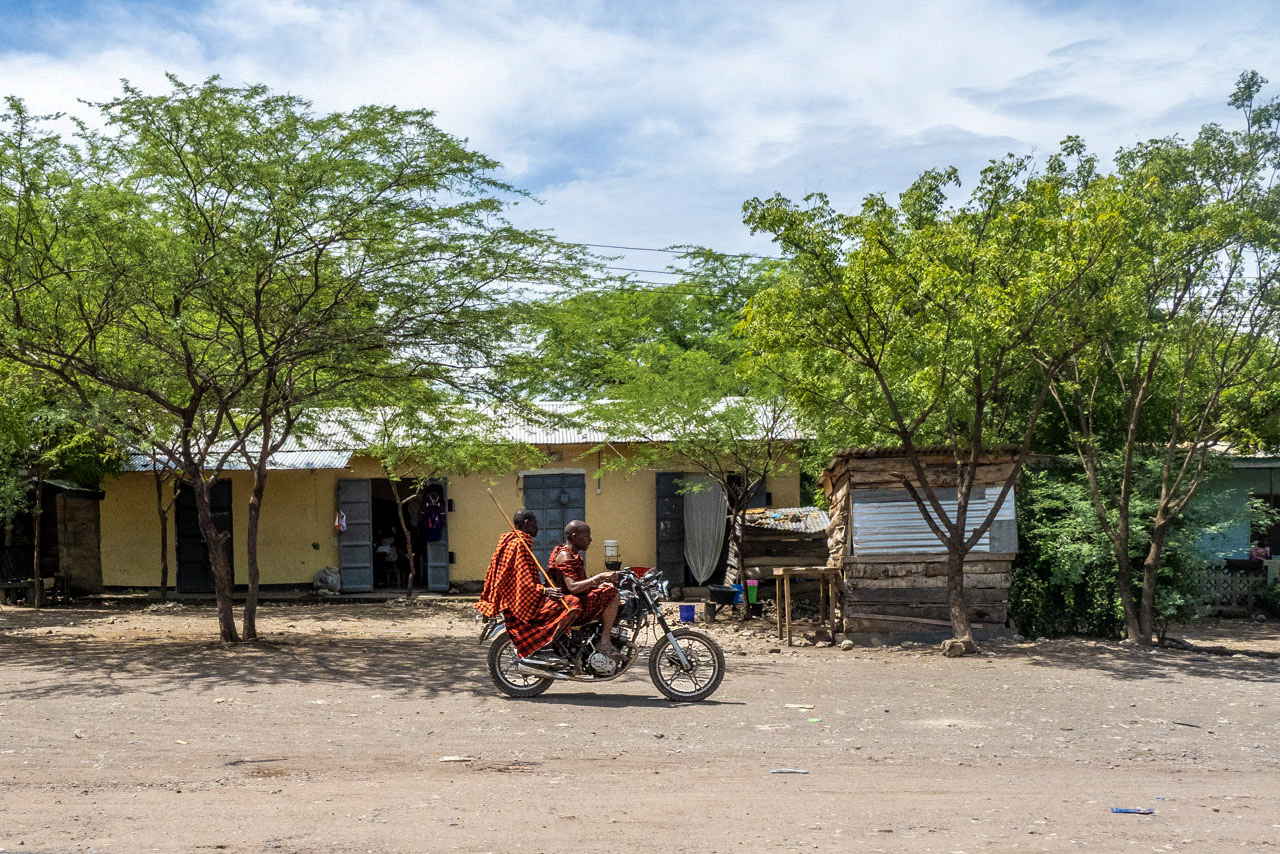

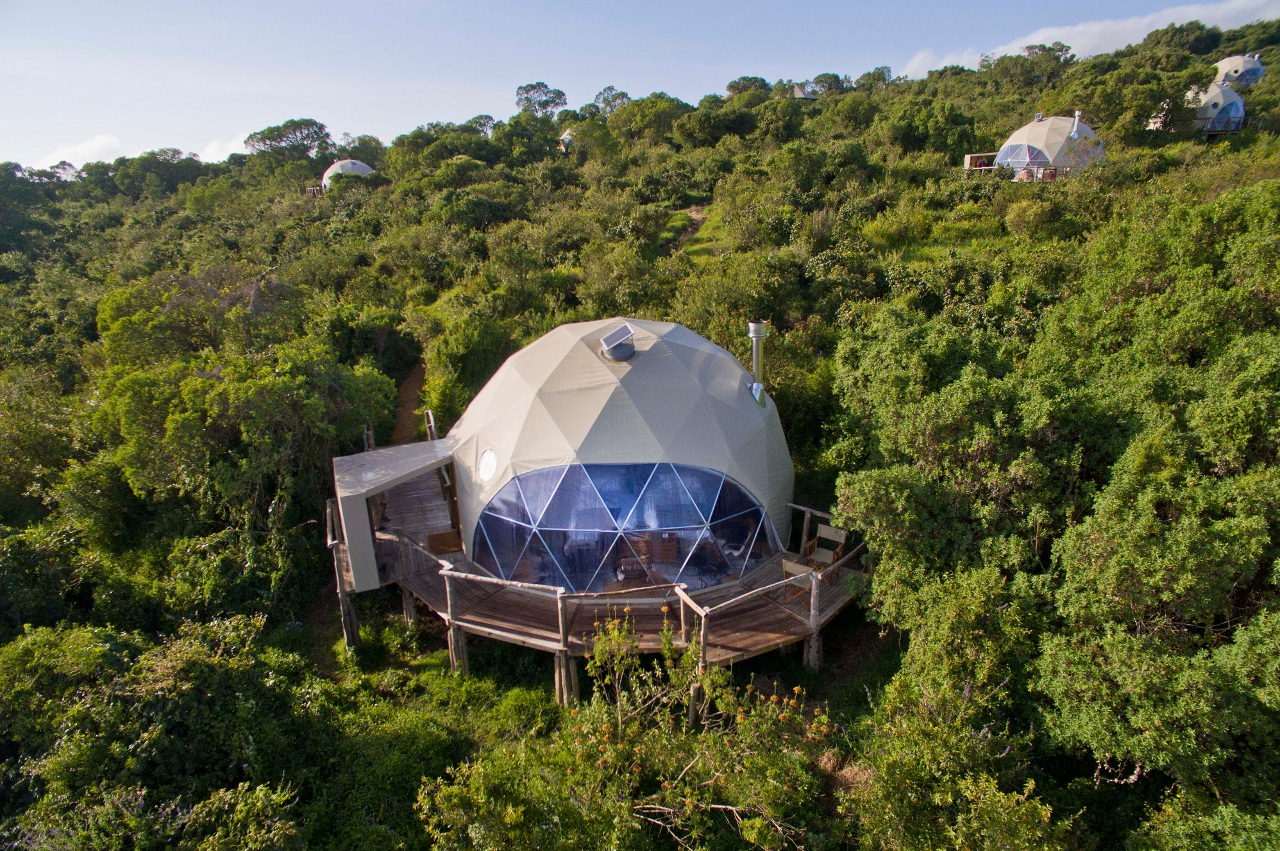
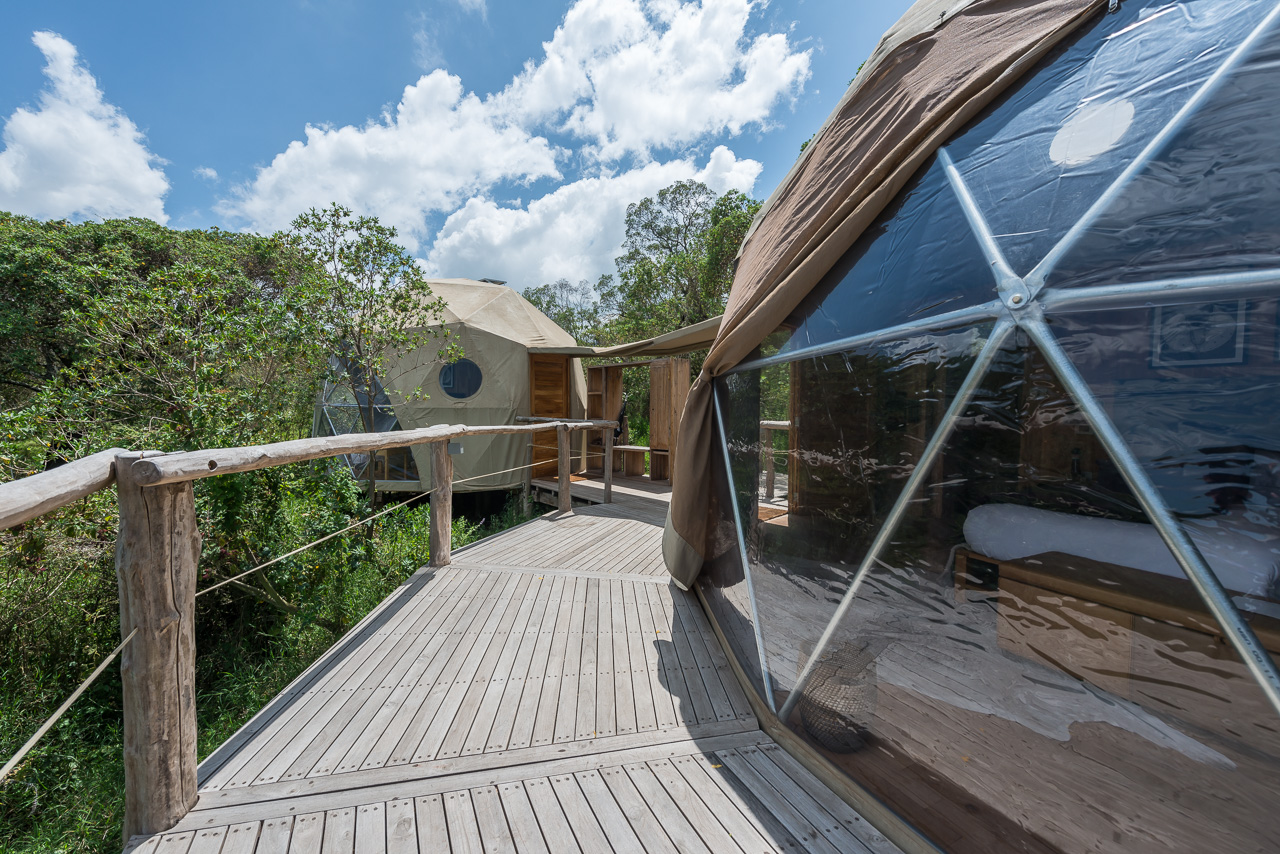
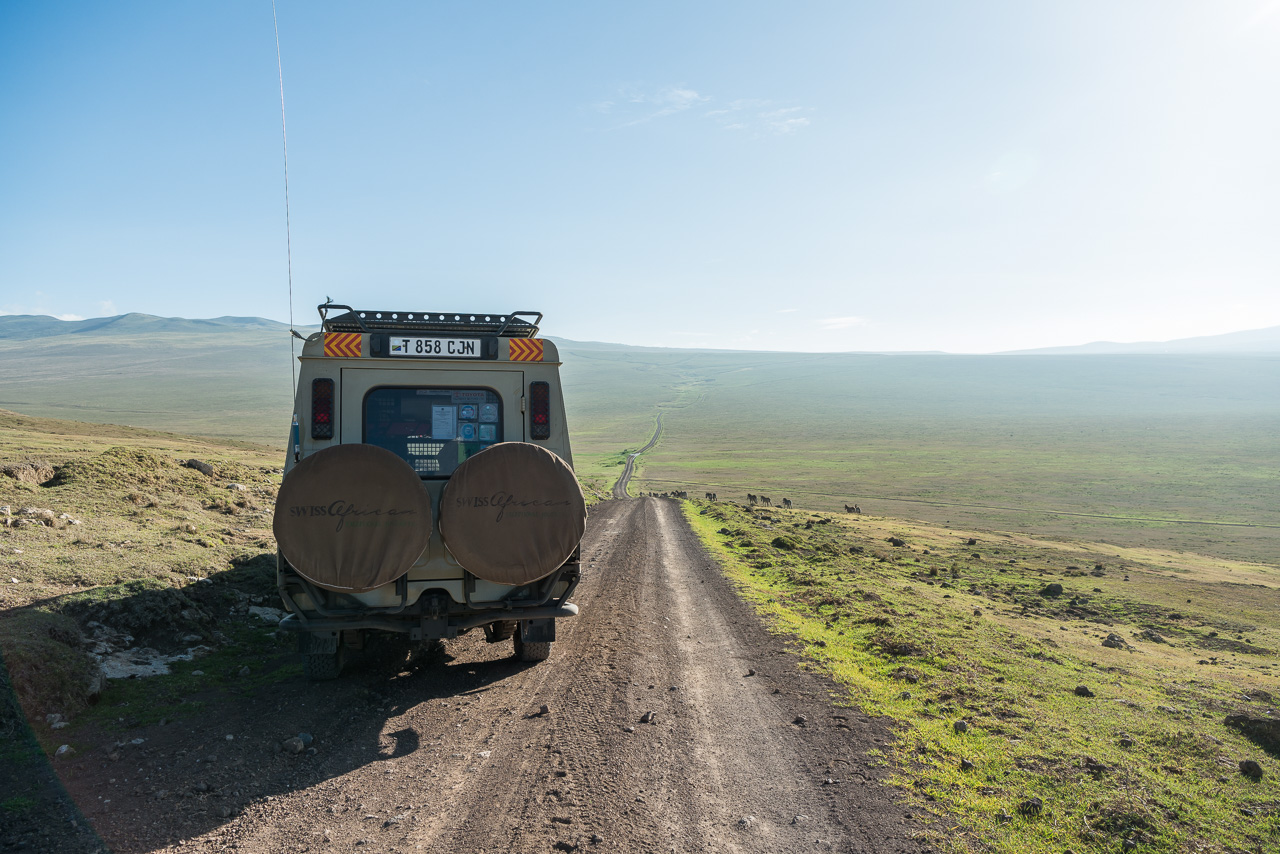
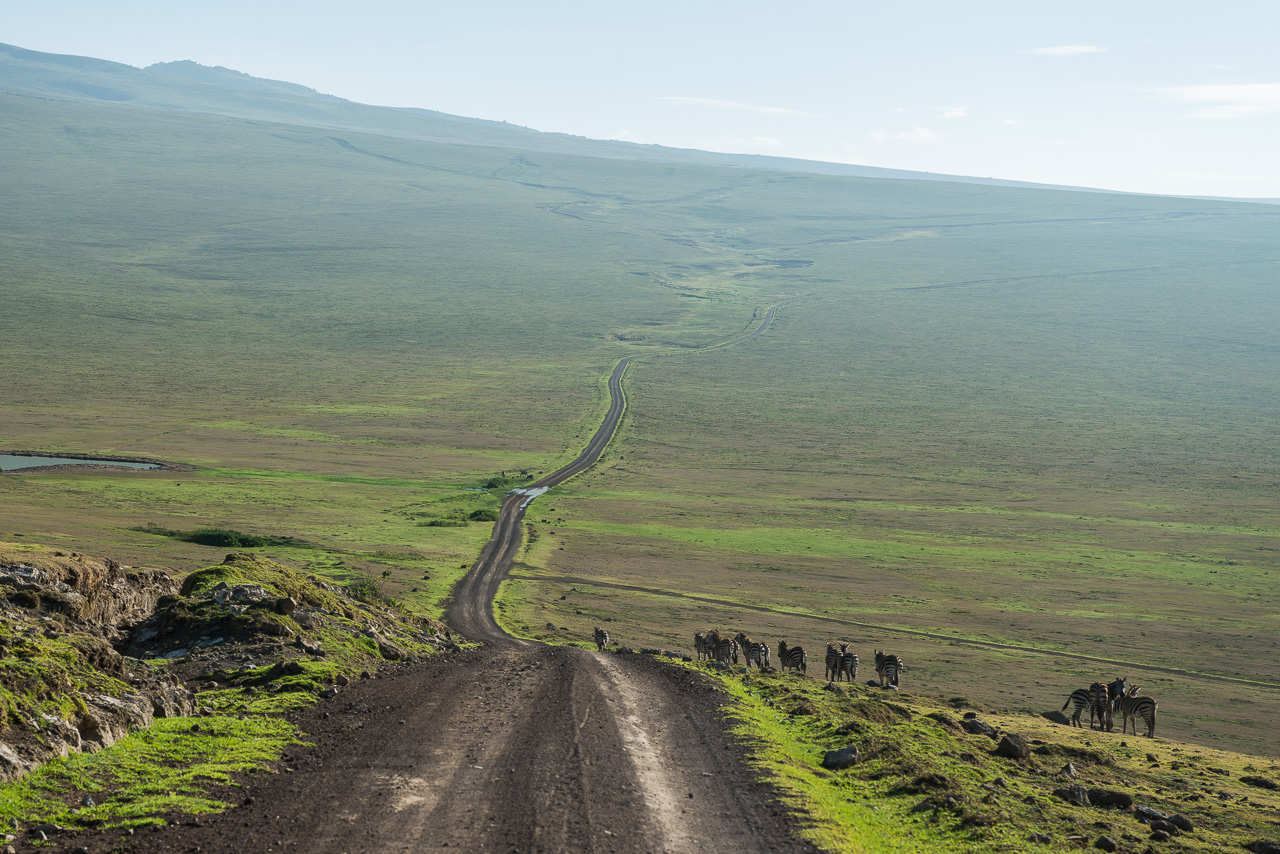
Accommodation The Highlands is a mountain retreat built at 2700m on the slopes of the Olmoti volcano. The camps offers game drives to Ngorongoro Crater but if you wish to do more than just the classic Ngorongoro Crater visit, climbing Olmoti Crater, descending into Empakaai crater or visiting a local Maasai community will complement your Tanzania experience.
The Highlands has 6 large, luxury guest tents with fantastic view plus a family tent and a honeymoon tent. The tents all feature king-sized beds, en-suite bathrooms with flushable toilet and bucket shower. Hot water is always readily available for guest comfort. Each tent also has a wood burning fire place for warmth in the colder months. The family tent is designed to accommodate 2 adults and 2 children. The honeymoon tent has an outdoor hot tub.
If you are keen on exploring the Ngorongoro Conservation Area on foot, the Highlands is your choice.
The camp can be reached from Lake Manyara Airstrip in about 3 hours. Driving time from Arusha is about 5 hours. A one-hour drive takes you to the Lemala entry of Ngorongoro Crater.
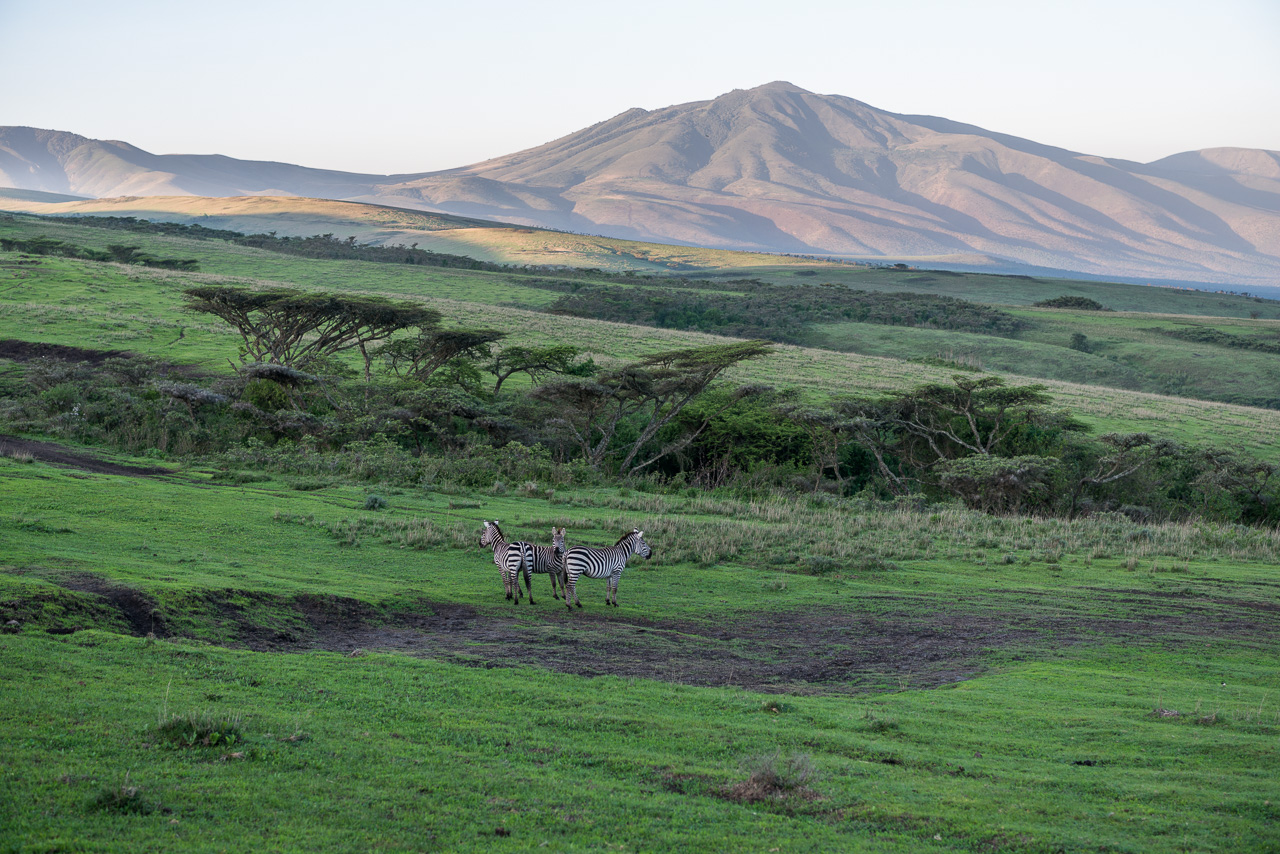
The crater is well known for its high concentration of predators. Powerful lion prides and their archenemy, the hyena, are permanently at home here, and can often be seen snatching prey from each other. With a bit of luck, it’s also possible to spot cheetah and leopard, or even one of the rare rhino. There is a small number of elephant here too, but not a single giraffe in sight, perhaps because the journey to the crater is too difficult for them. With this in mind, it is quite amazing then that several hippos live here! The crater is diverse and forms a closed ecosystem comprising grassy plains, wooded areas (such as the Lerai Forest), various marshlands, natural springs and Lake Magadi at its centre, which supports flamingo and pelican.
The Ngorongoro Crater is a three-hour drive from Arusha. The road leads through the Serengeti via the Karatu Highlands to the rim of the crater. There are three entrances in and out of the crater, which are partly very steep and difficult to access in a vehicle. There are no places to stay within the crater itself, but there are some lodges situated on the rim, the cheapest option, however, is to drive back to the Karatu region. The abundance of wildlife and the crater’s natural beauty attracts a large number of tourists. This can lead to the crater being overrun by vehicles – which means you will be disappointed if you’re looking for a solitary experience. Nevertheless, it is still well worth a visit as it can be quite spectacular during off-peak hours.
It is thought that a huge volcano exploded and collapsed in on itself some two or three million years ago. The massive emission of ash settled in a thick and densely compacted layer over the southern Serengeti, stopping any trees from growing. The undulating grass plains of the Serengeti are a result of the volcanic activity of the Ngorongoro and its neighbouring volcanoes, Olmoti, Empakaai and Ol Doinyo Lengai.
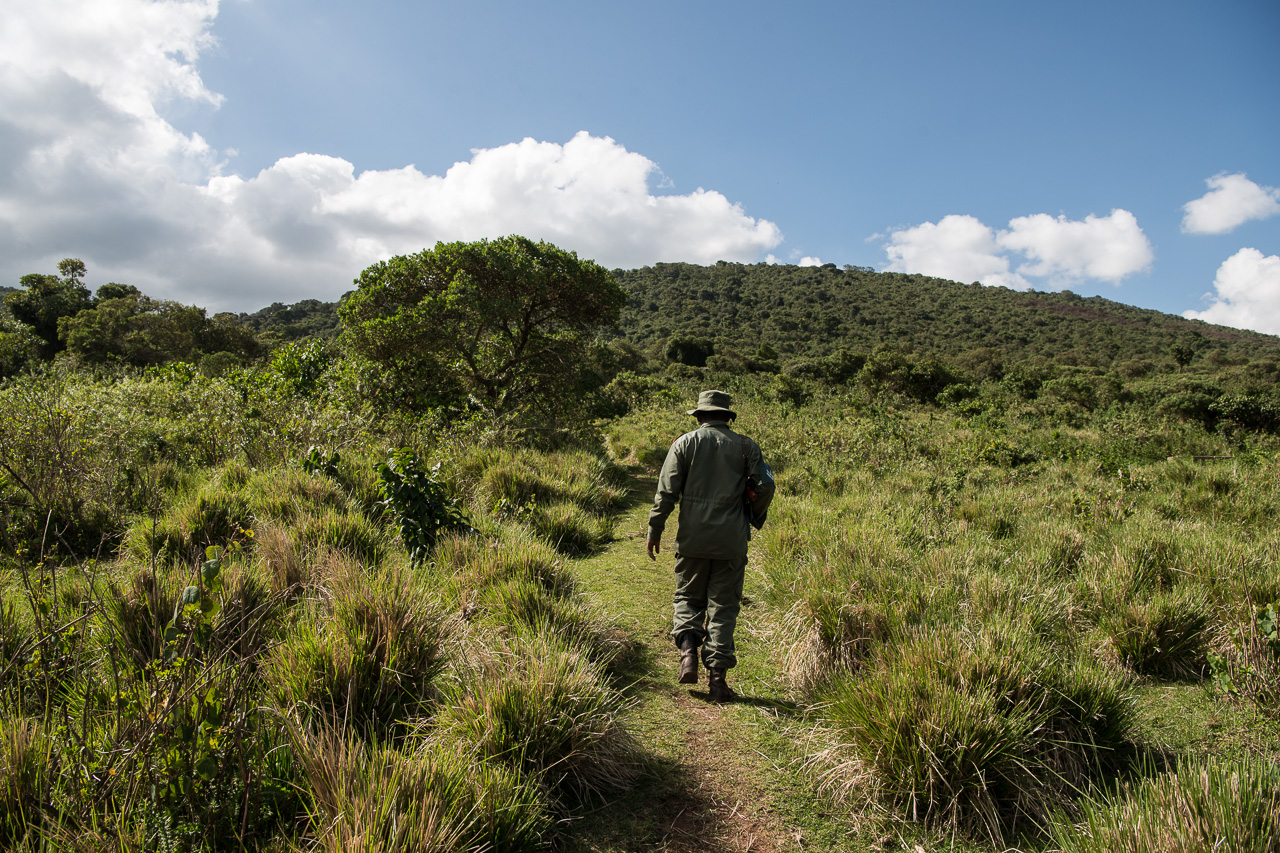
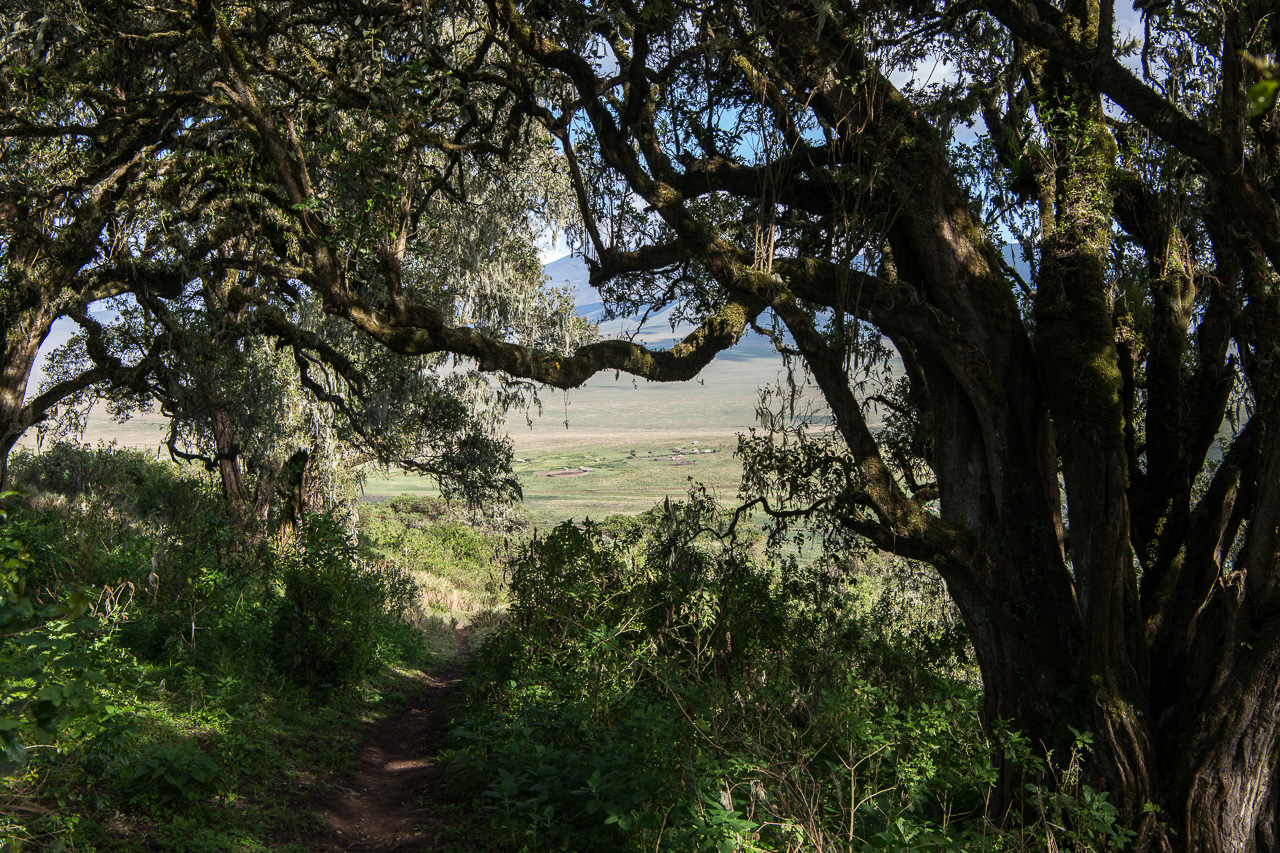
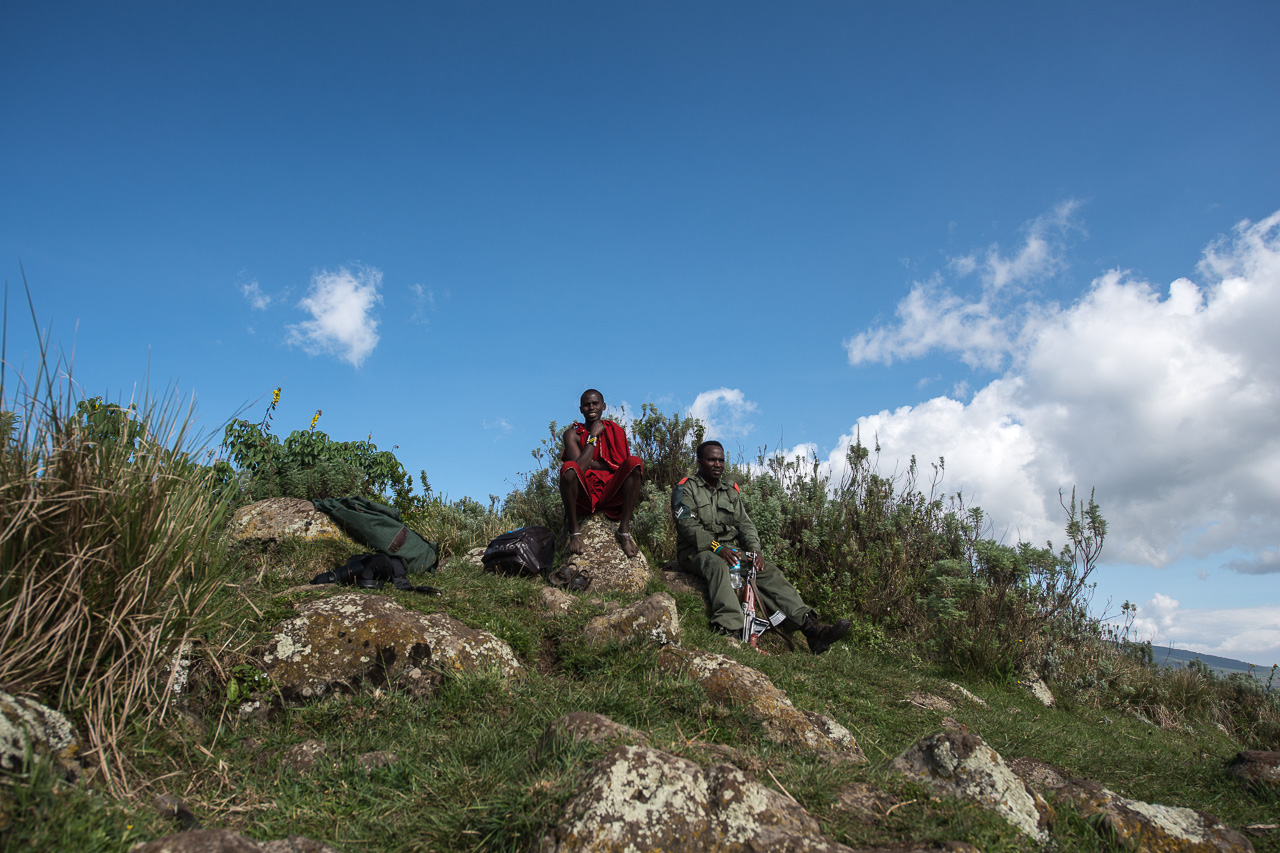
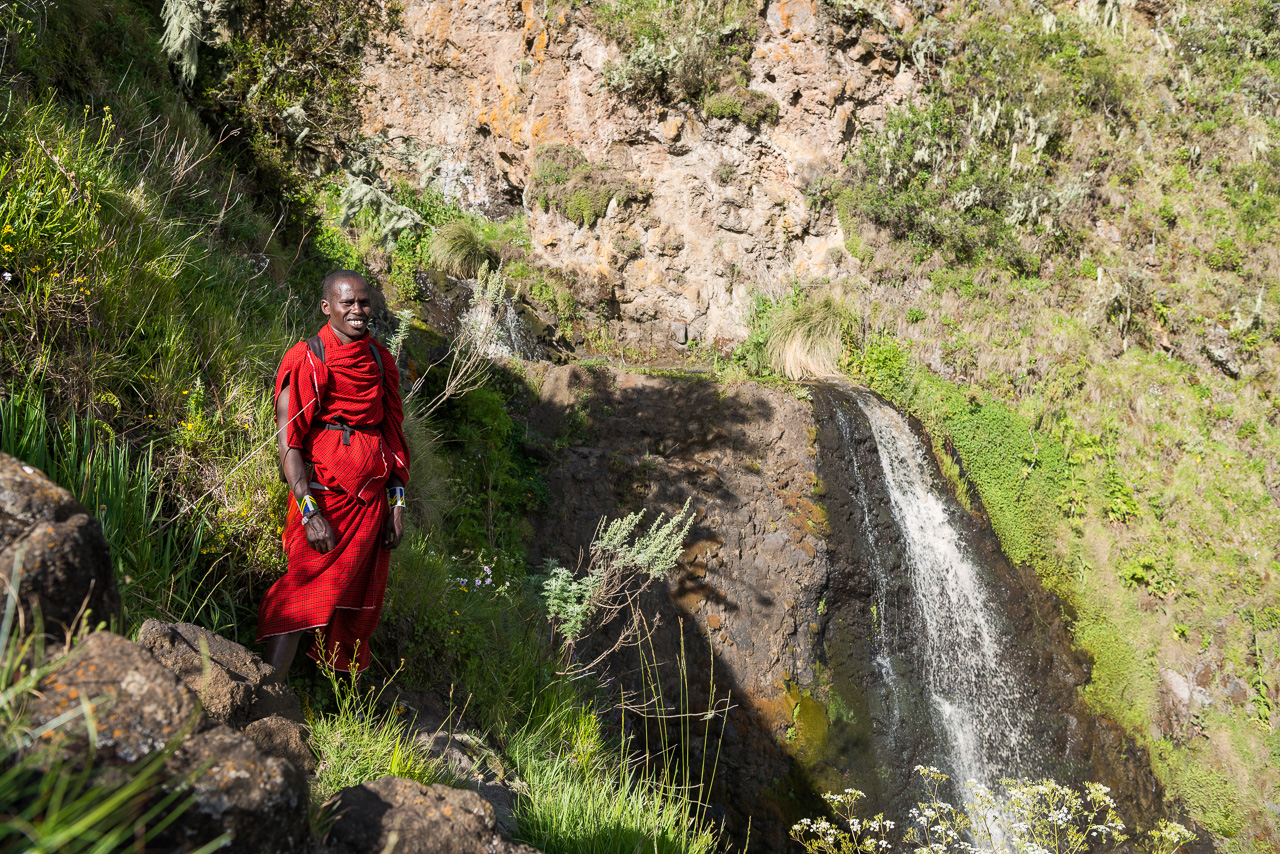
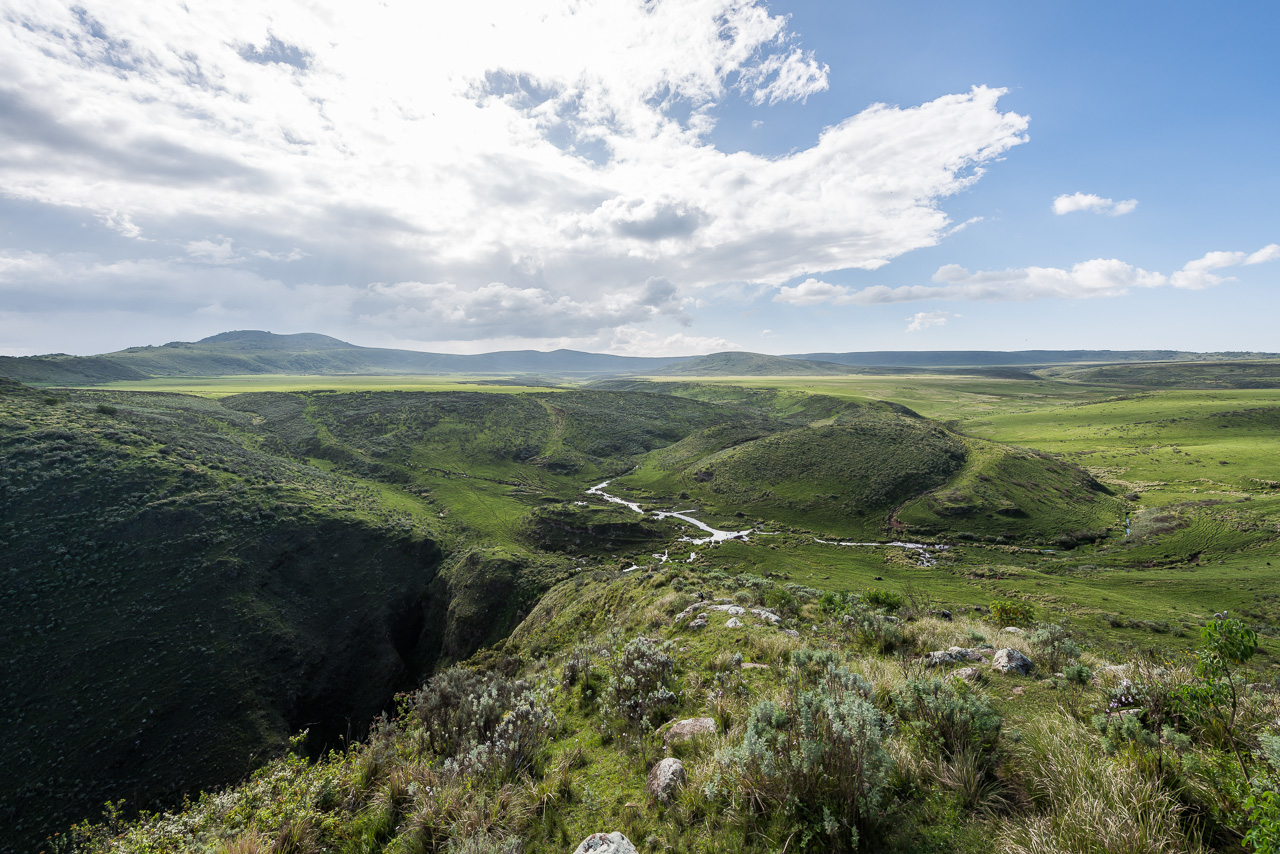

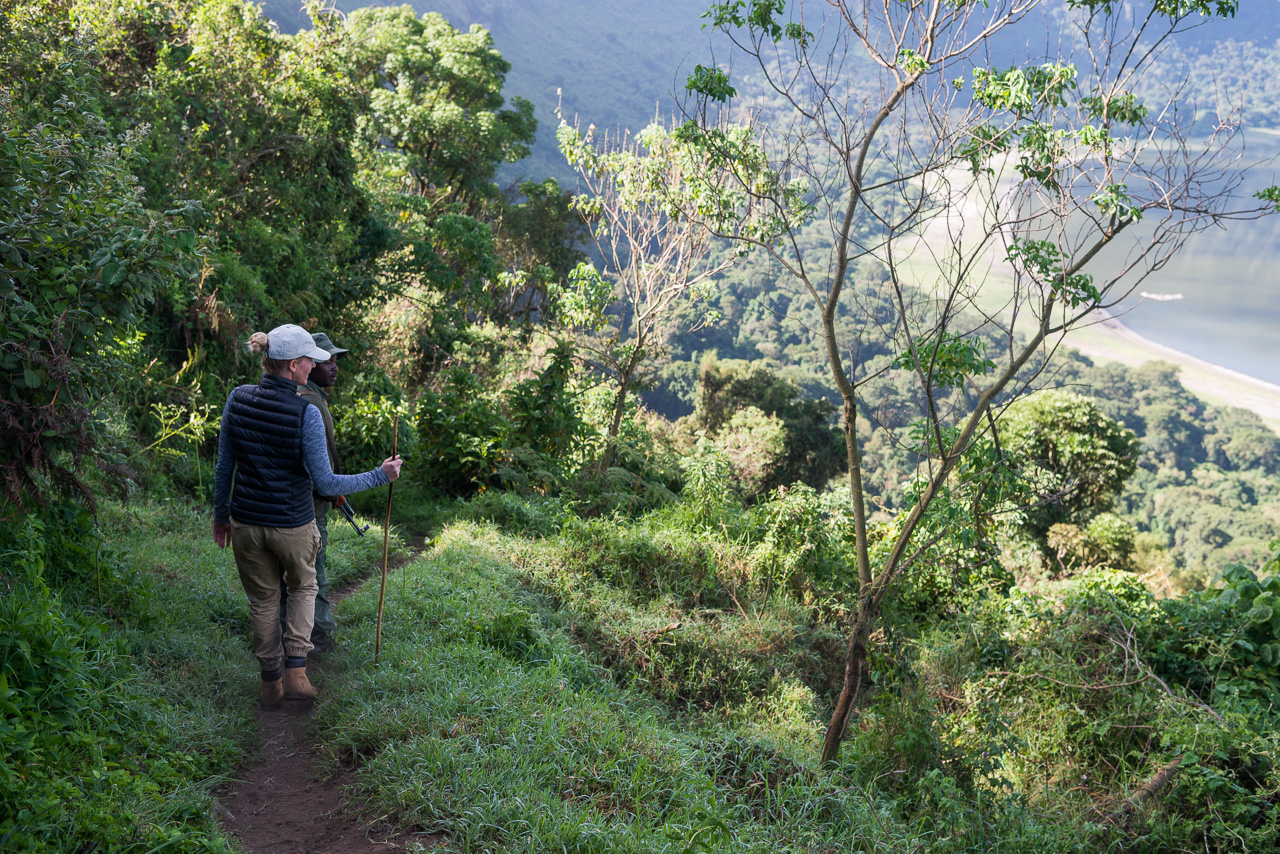
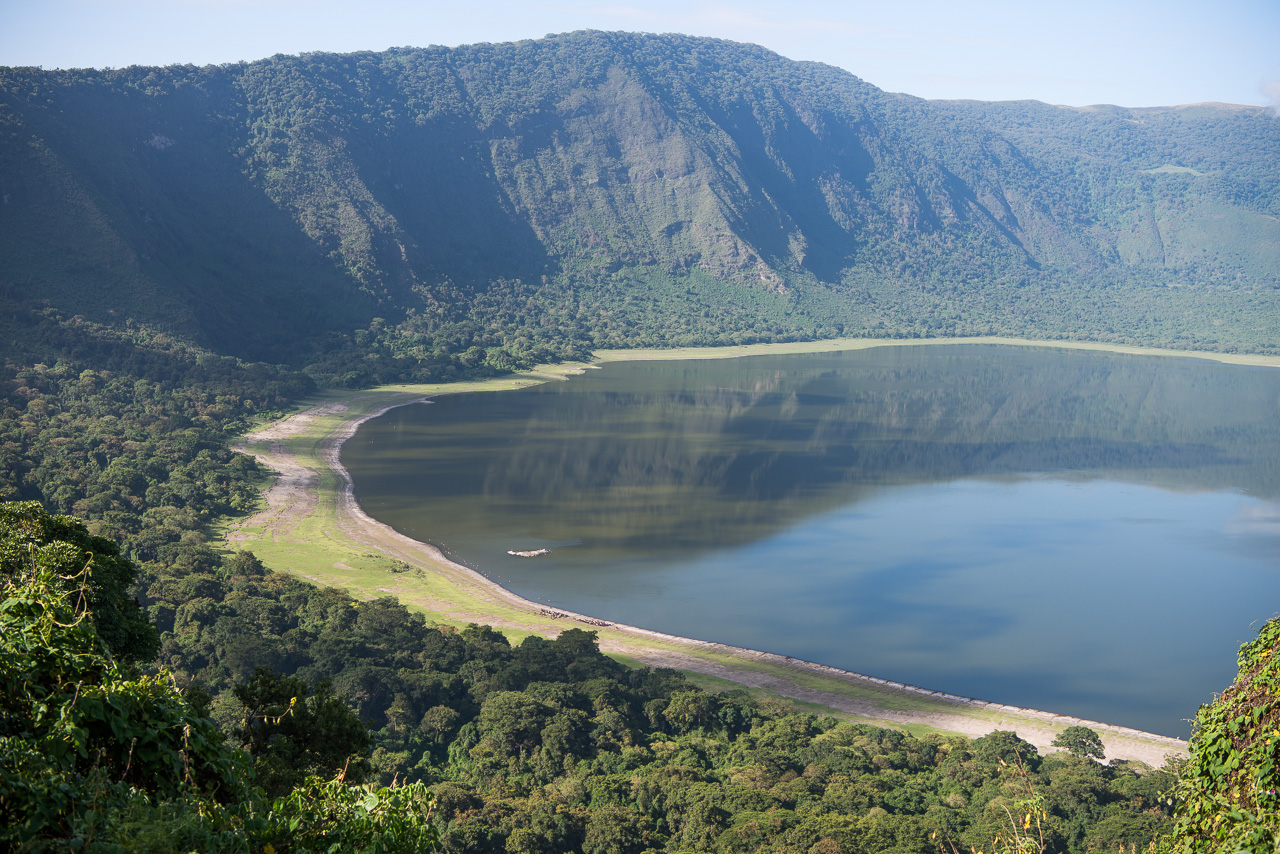
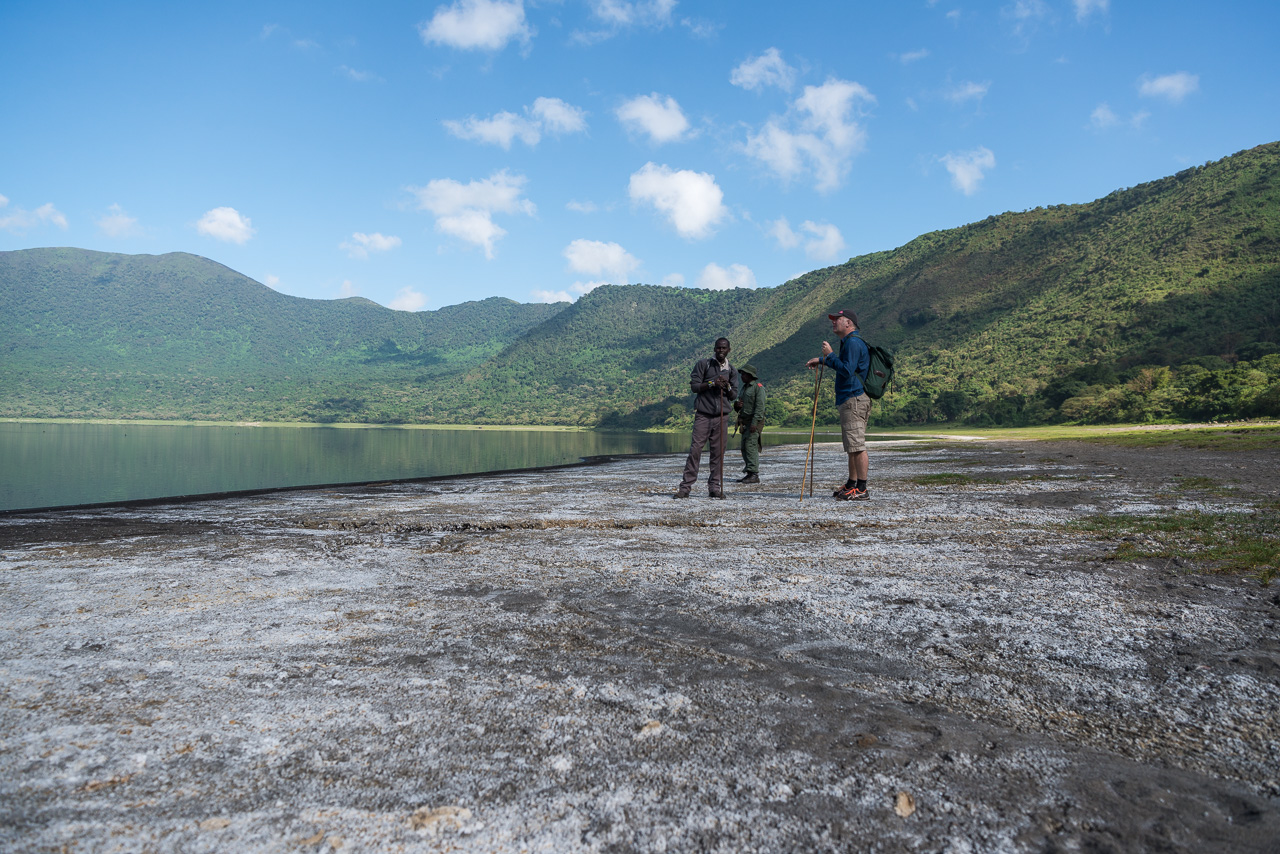
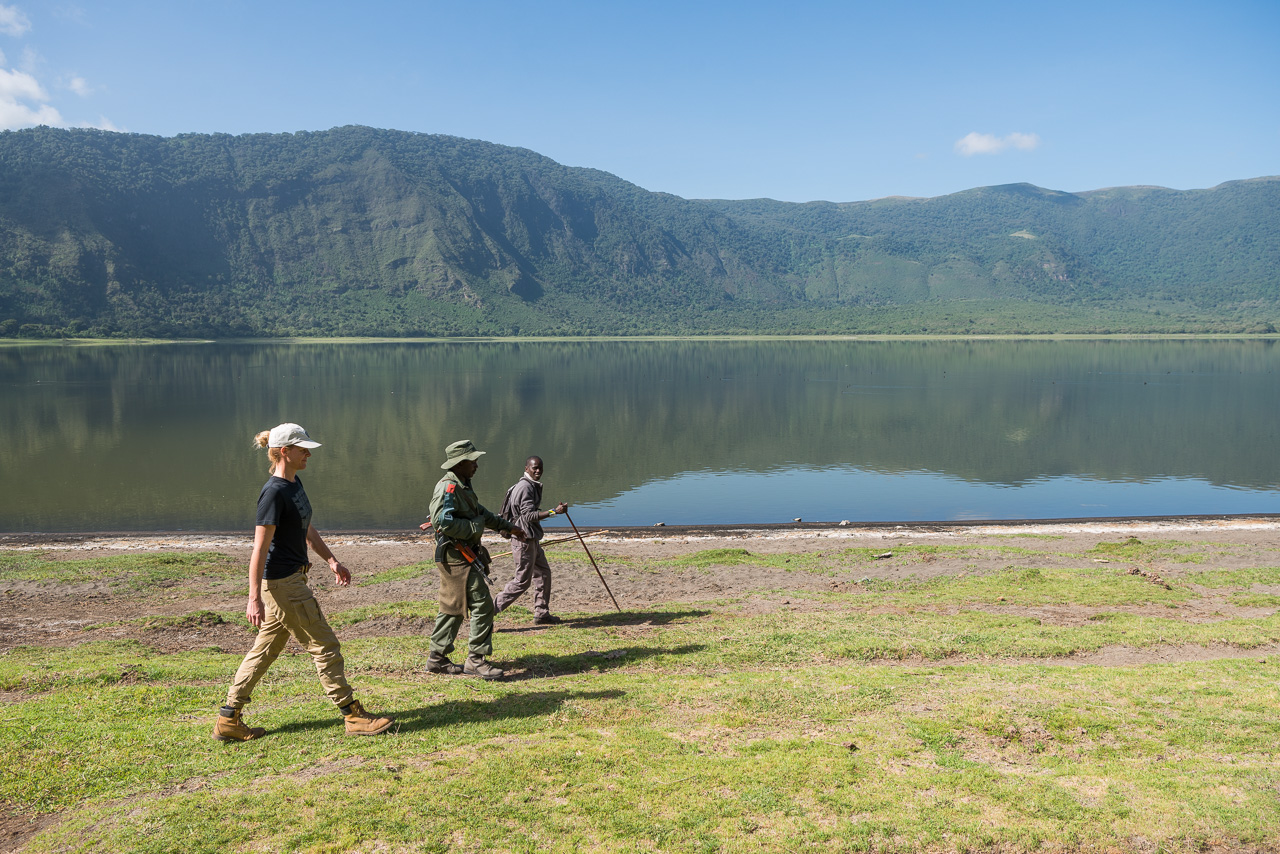
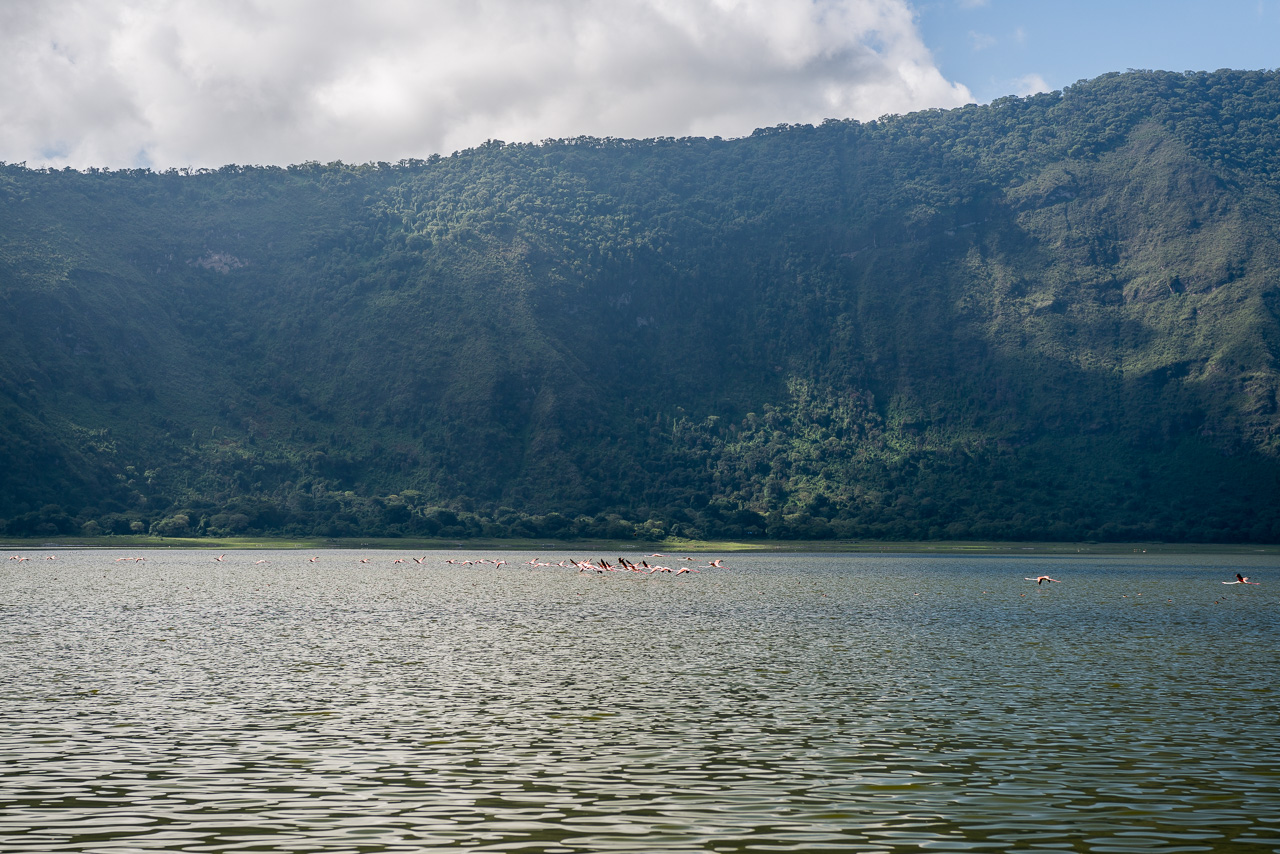
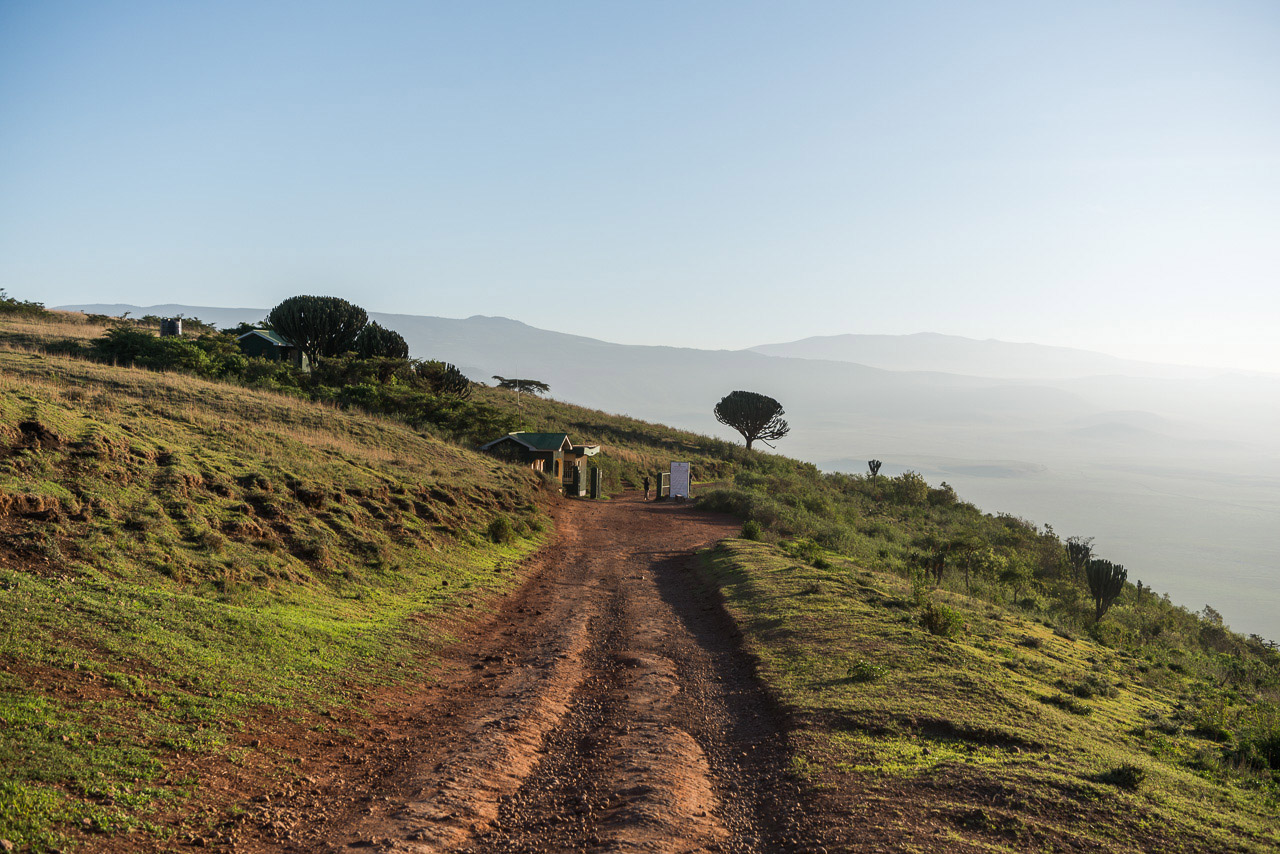
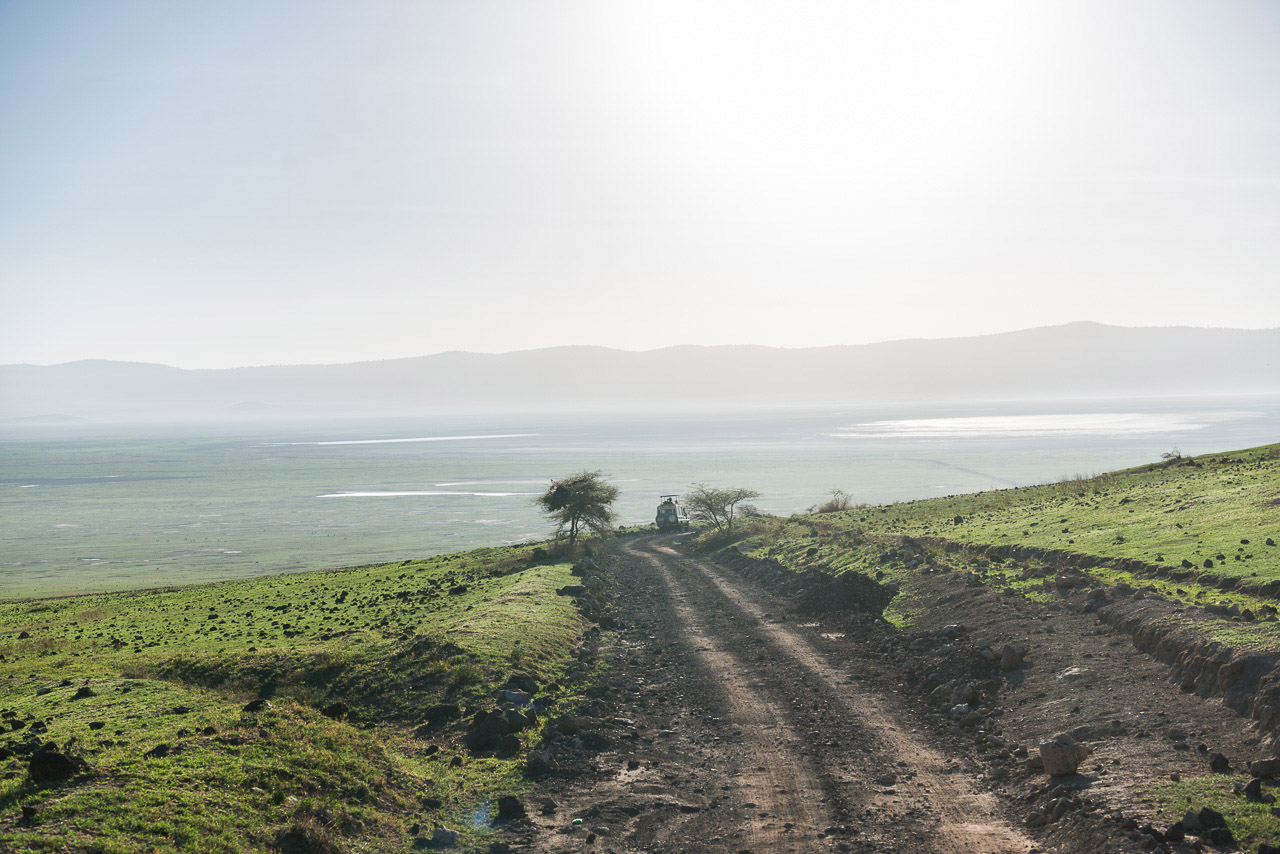
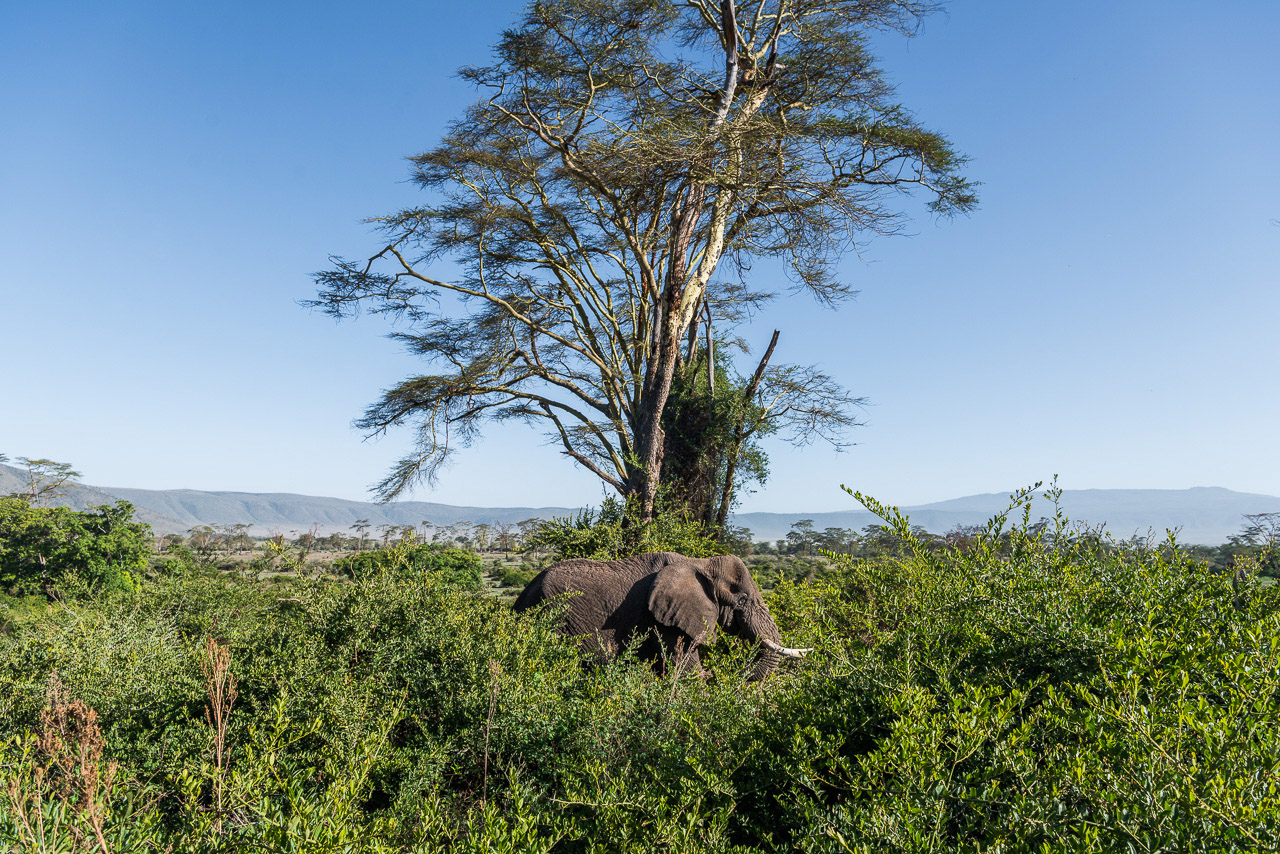
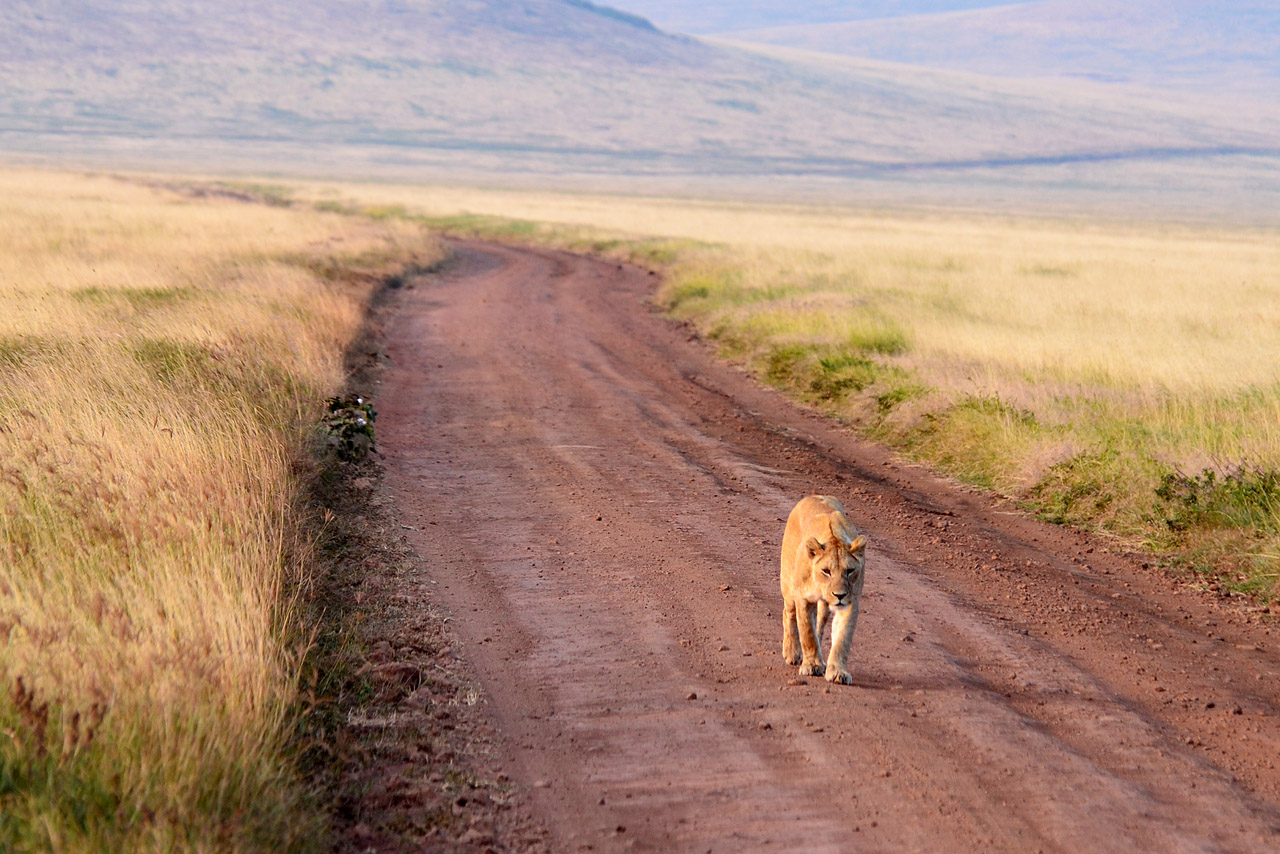

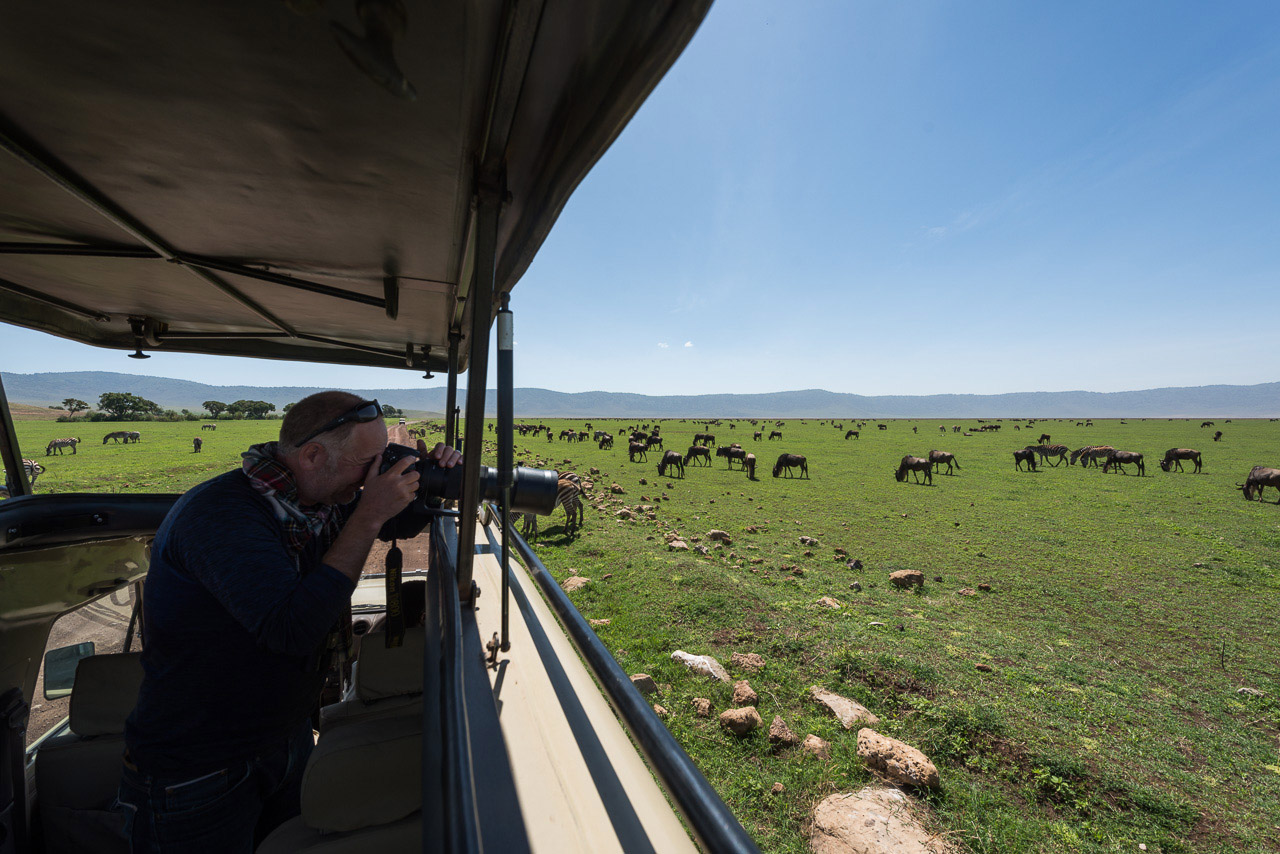
The Ngorongoro Crater is the world's largest inactive, intact, and unfilled volcanic caldera with 19km in diameter and walls 600m high. Its floor covers 260 square kilometres and acts like a natural zoo, providing food for a high resident animal population.
The mineral-rich crater floor is covered with nutritious grass and attracts large herds of animals. Up to 25’000 mammals, primarily herbivores can be found at any one time in the Ngorongoro Crater. The list includes wildebeest, eland, hartebeest, zebra, gazelle, buffalo, rhinos and warthog. Moors and forests provide food for hippo, elephant, baboon, waterbuck and bushbuck. Big cat such as lion, cheetah, leopard and serval find rich pickings here. Large packs of hyena also roam the crater, hunting or pinching the prey of other predators.
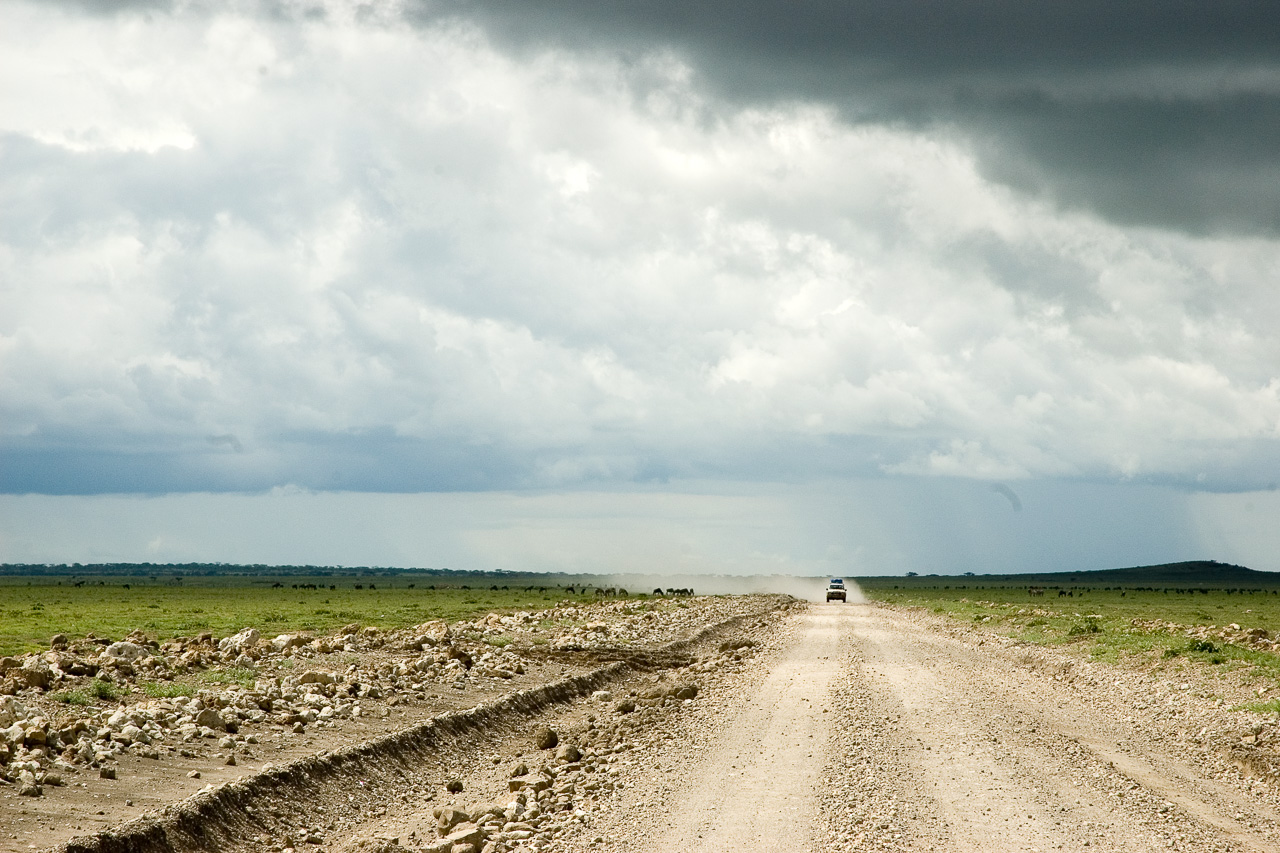
The dusty gravel road leads primarily to the west where the vast plains of the Serengeti extend to the horizon. After two hours of brave driving, you arrive at Naabi Hill Gate where some bureaucracy needs to be sorted. After a short time we leave the main road and follow small paths across the endless grassy plains to your next camp.

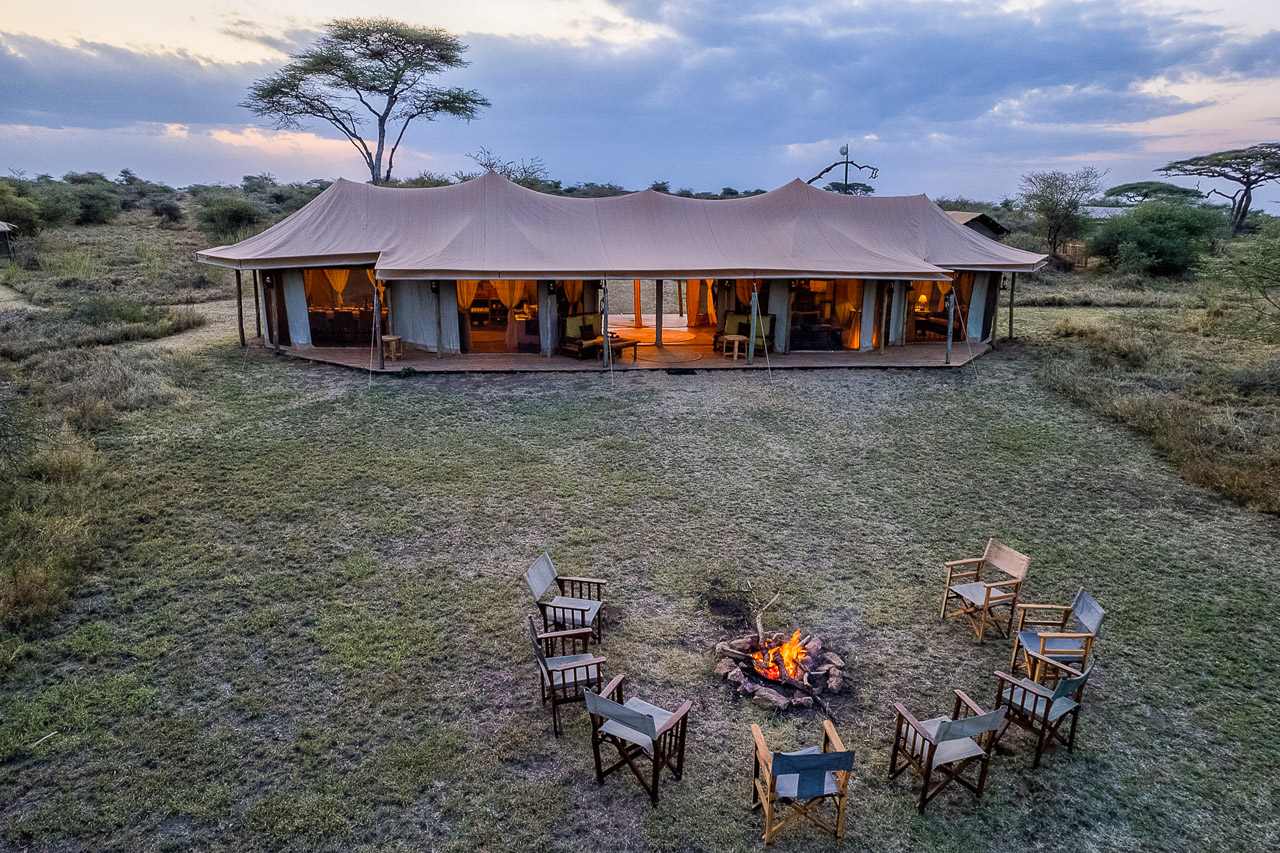
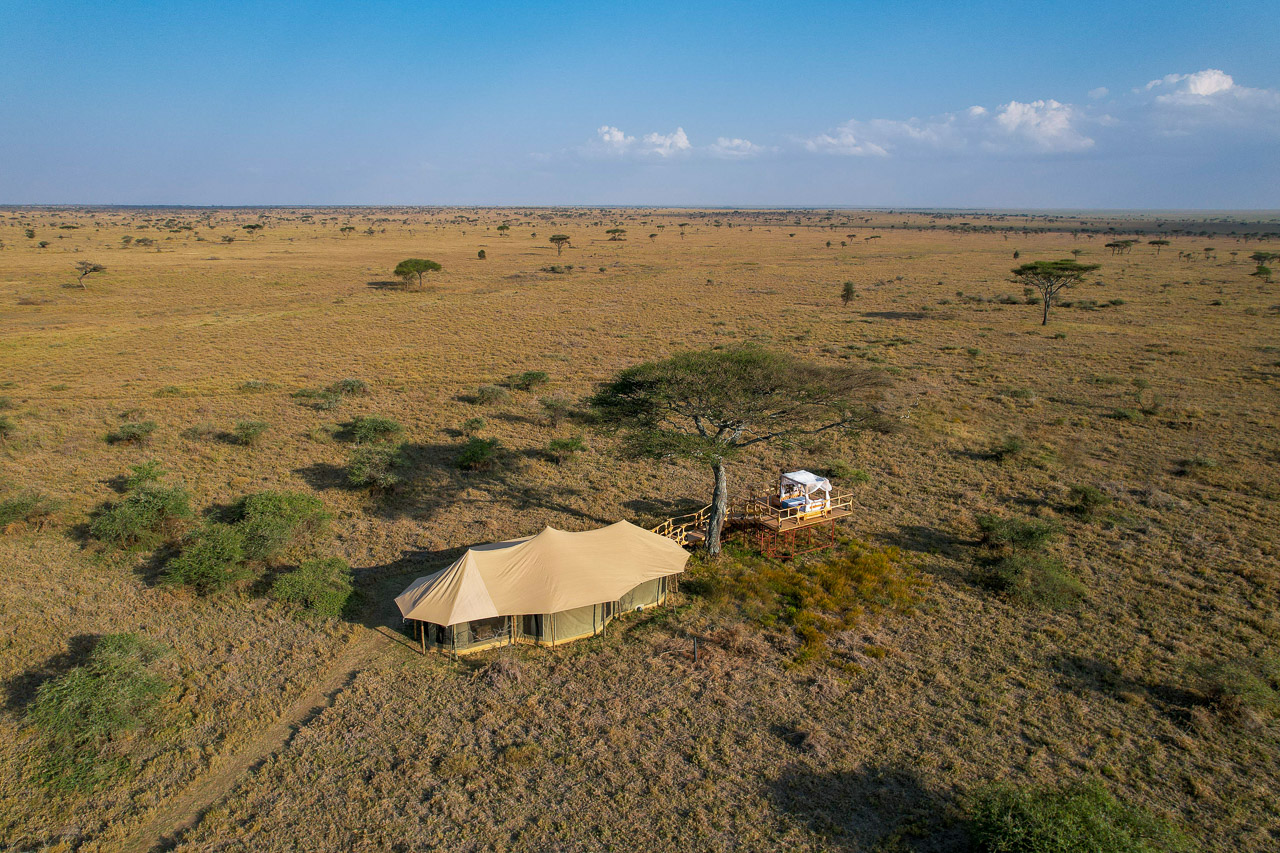
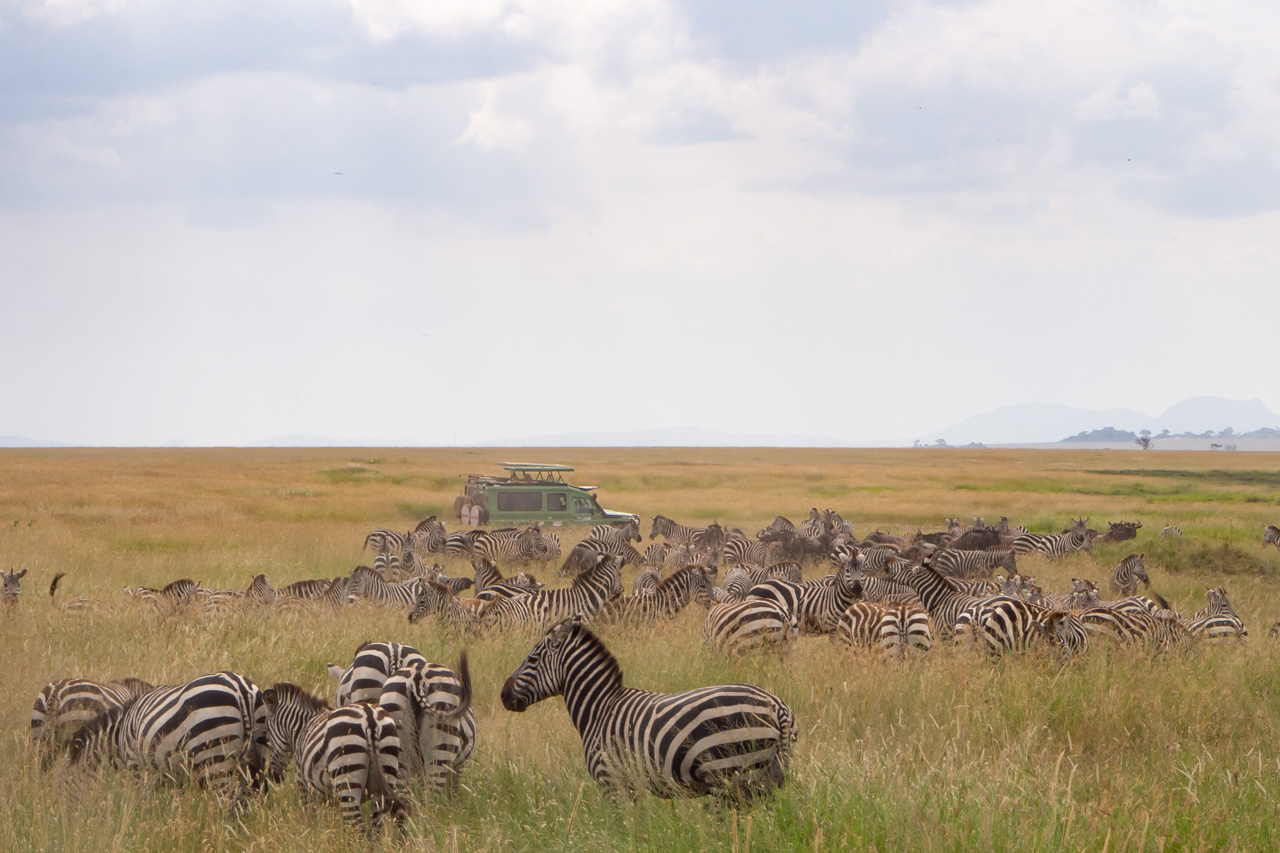
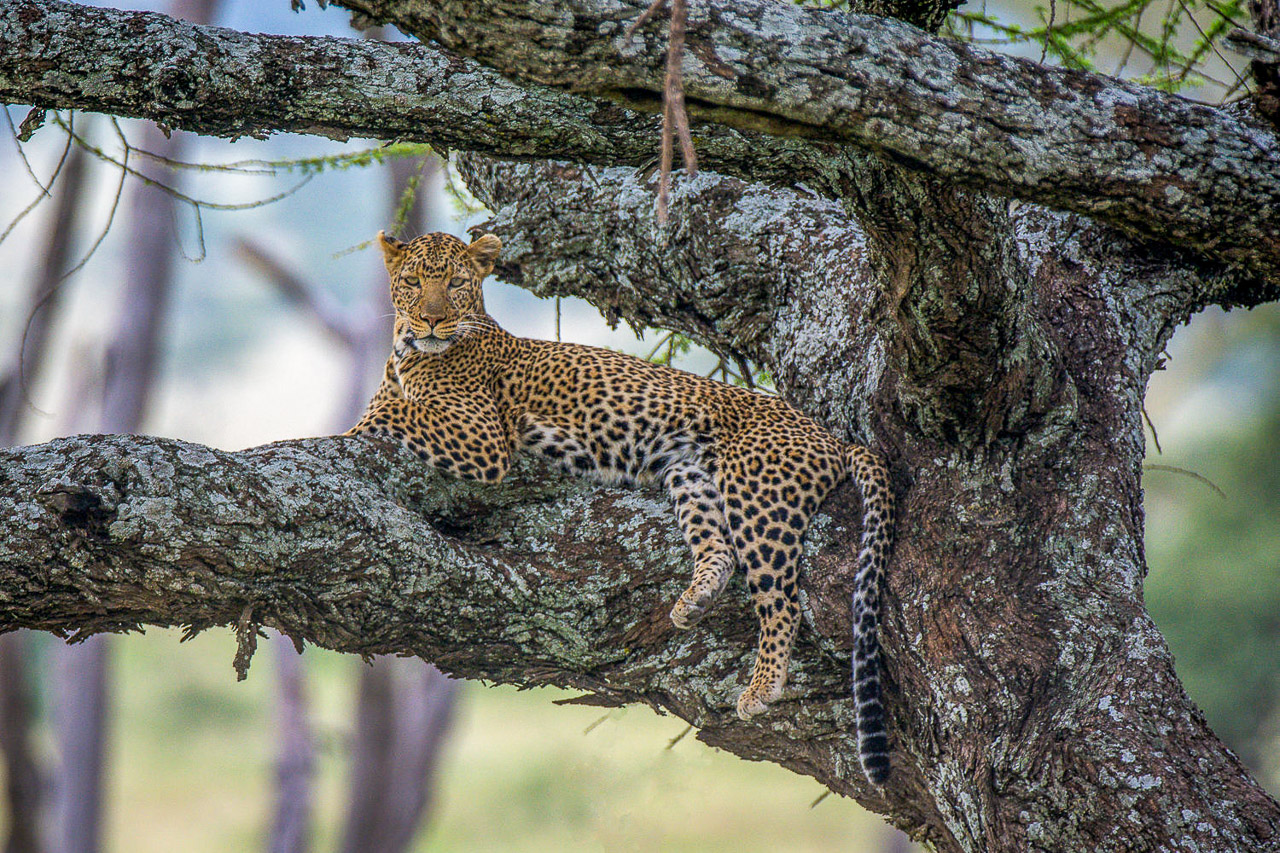
Accommodation
Olmara Camp is a classic safari camp providing eight beautiful guest tents, all under canvas with en-suite bathrooms and clear vistas of the wilderness ahead. Two of the tents are family units. Some of the tents also have stargazer platforms with an extra bed where brave guests can spend a night outdoors under the stars.
Breakfast and dinner will be served in the main tent, which is located in the middle of the camp. An open fireplace invites guests to have a pre dinner aperitif and exchange experiences after another exciting day on safari.
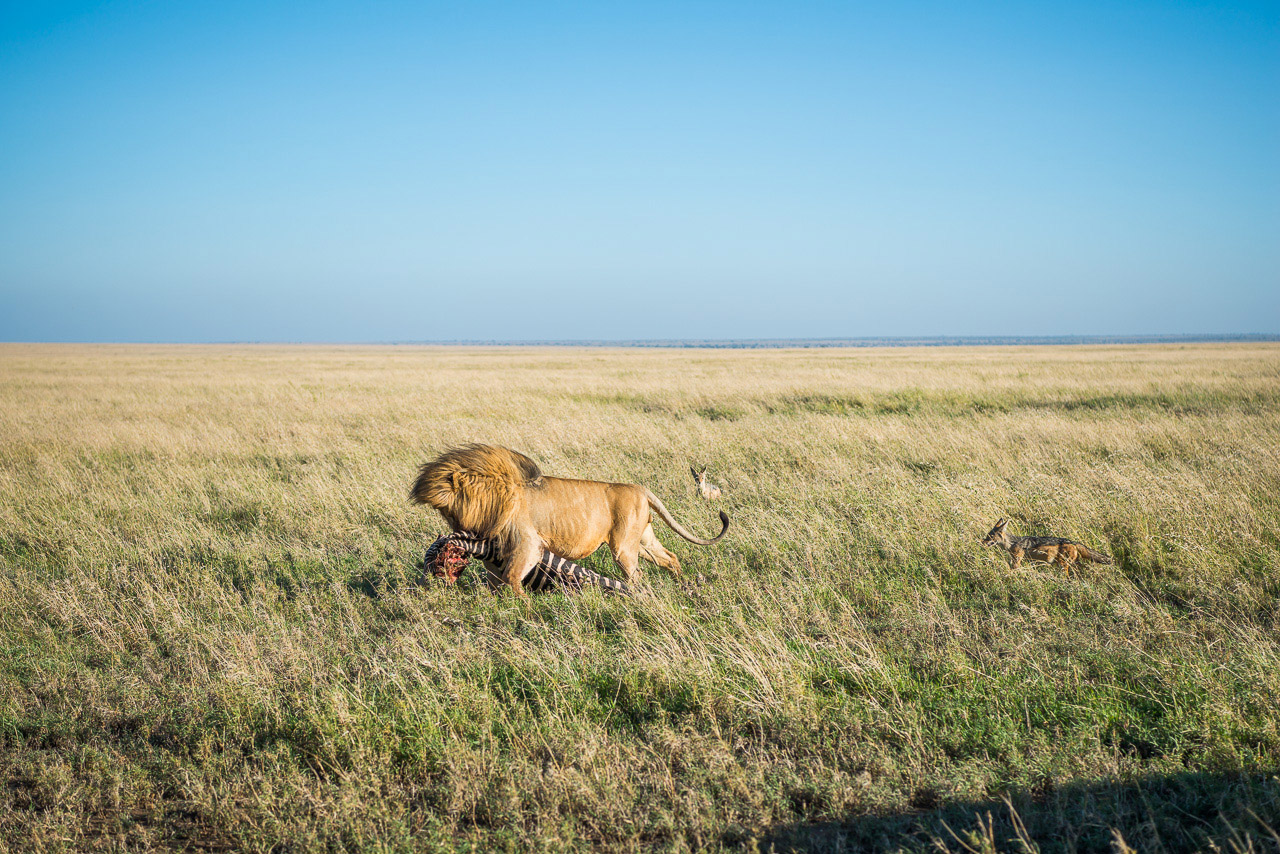
We recall Bernhard Grzimek’s television series and his descriptions of the wildlife paradise that is the Serengeti. The endless grassy plains are deeply impressive and the Serengeti is without doubt one of the most attractive safari destinations in the world.
If you’re in the right place at the right time, it is possible to experience the huge herds of wildebeest (up to two million), with some half-a-million zebra and a couple of hundred thousand Thompson’s gazelle, impala etc… in tow – accompanied by a couple of hungry lion, hyena and cheetah. The spectacle reaches its pinnacle in the north of the Serengeti, when the herds cross the Mara River.
The Serengeti ecosystem includes the actual national park (approx. 15’000 km²) and the bordering protected areas; chief among them is the Maswa Game Reserve in the southwest, the Grumeti and Ikorongo game reserves in the northwest, the Maasai Mara in the north, and Loliondo and the Ngorongoro Conservation Area in the east. The plains in the south comprise for the most part treeless flatlands that stretch out to the horizon. Typically, the plains of the Serengeti are punctuated by tree-covered granite outcrops known as ‘kopjes’, which provide the perfect resting place and observation post for predators. The northern part of the Serengeti is hillier with more vegetation.
The majority of guests travel to the camps that are located in the area where the migrating animals happen to be. If you wish to be alone, then look for a camp where the migration is NOT currently passing through, or combine several camps. There is an abundance of wildlife everywhere, mainly cheetah, hyena, jackal, lion and leopard, which are somewhat more difficult to find. In addition to wildebeest and zebra, there is a good concentration of topi, Grant and Thompson’s gazelle, eland and kudu etc… Elephant and buffalo are also present, but not in great numbers. Rhino also live in the Serengeti, but are naturally very shy creatures and therefore difficult to find.



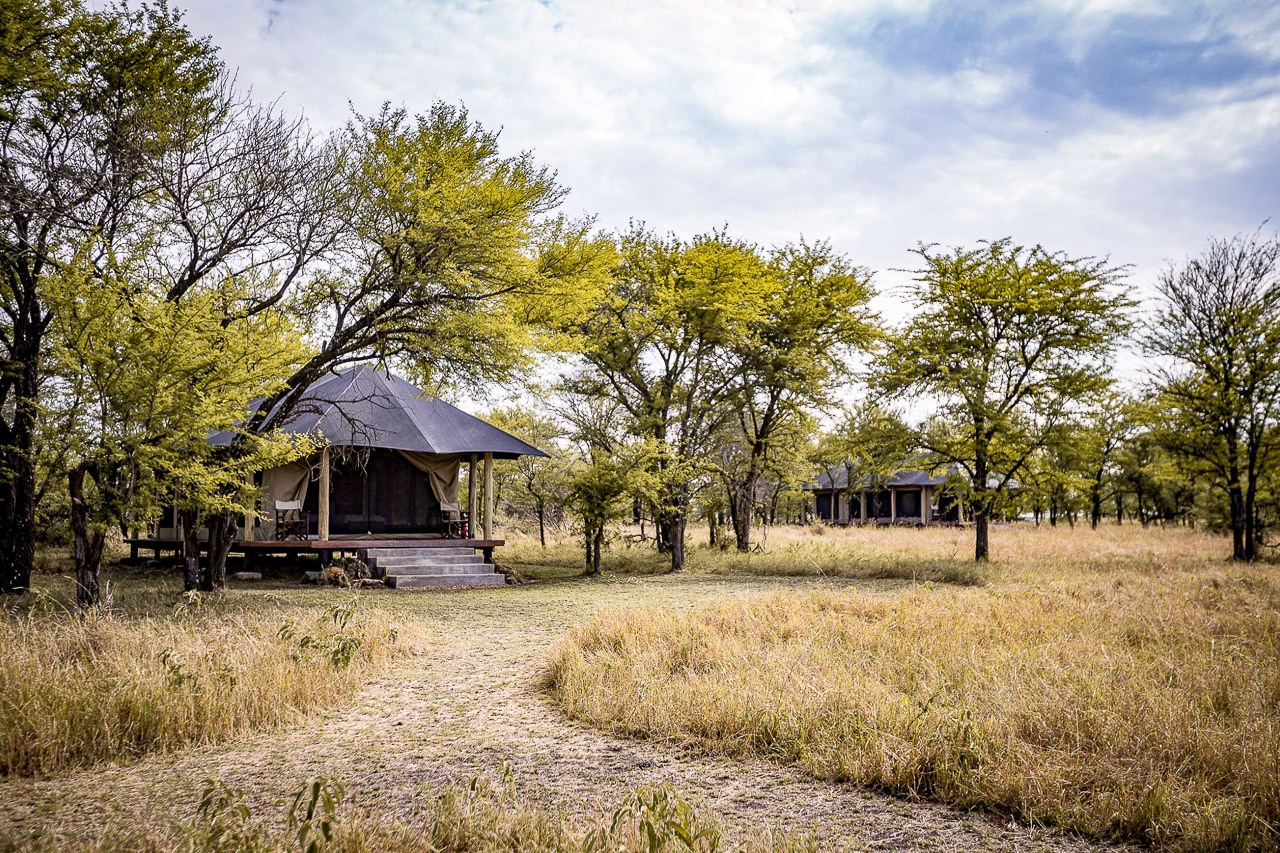
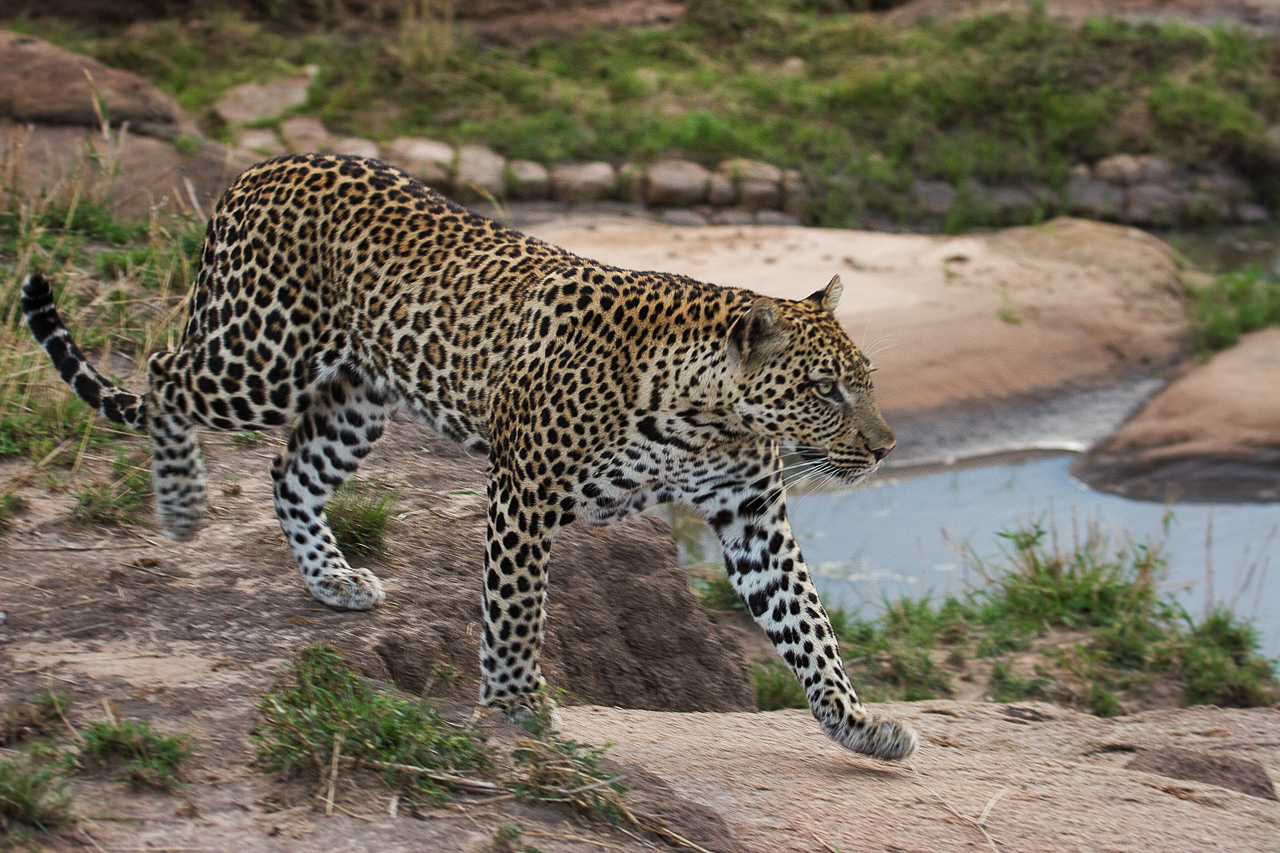
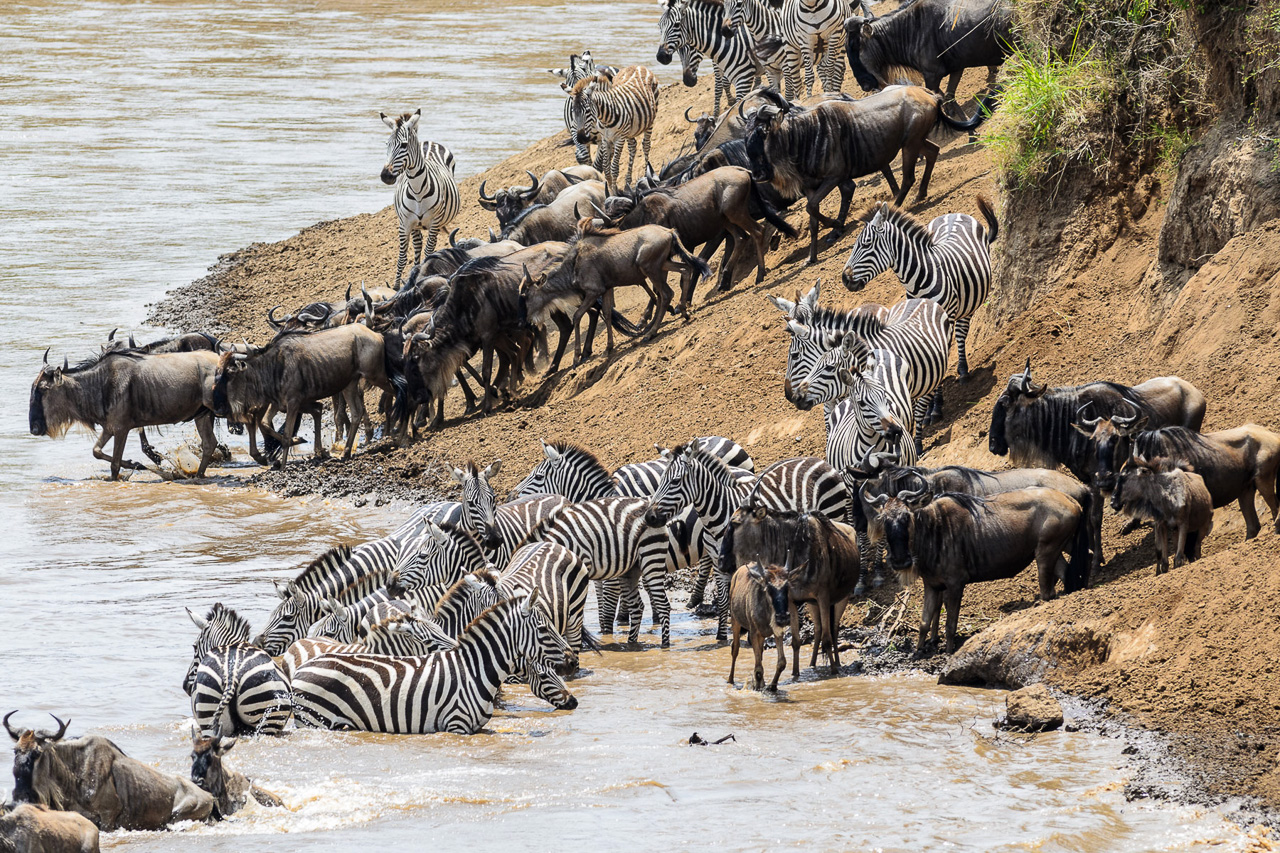
Accommodation
The charismatic Serian Lamai Camp is a permanent camp in the Serengeti's extrem North, featuring 10 tents with en-suite bathrooms. Two of the rooms are 2-bedroom family suites, each bedroom with a private bathroom and linked by a lounge/dining area. The camp is actually compromised of two wings, each with its own main building and 4 rooms plus one family suite. Please note that there is no Wi-Fi at the Serian camps.
A huge advantage of all Serian camps: all guests have exclusive use of their safari vehicle at no extra cost. Your private guide will make sure you’ll experience an incomparable safari.
The camps can be approached via Lamai Airstrip from where it is about a 40-minute drive to camp.

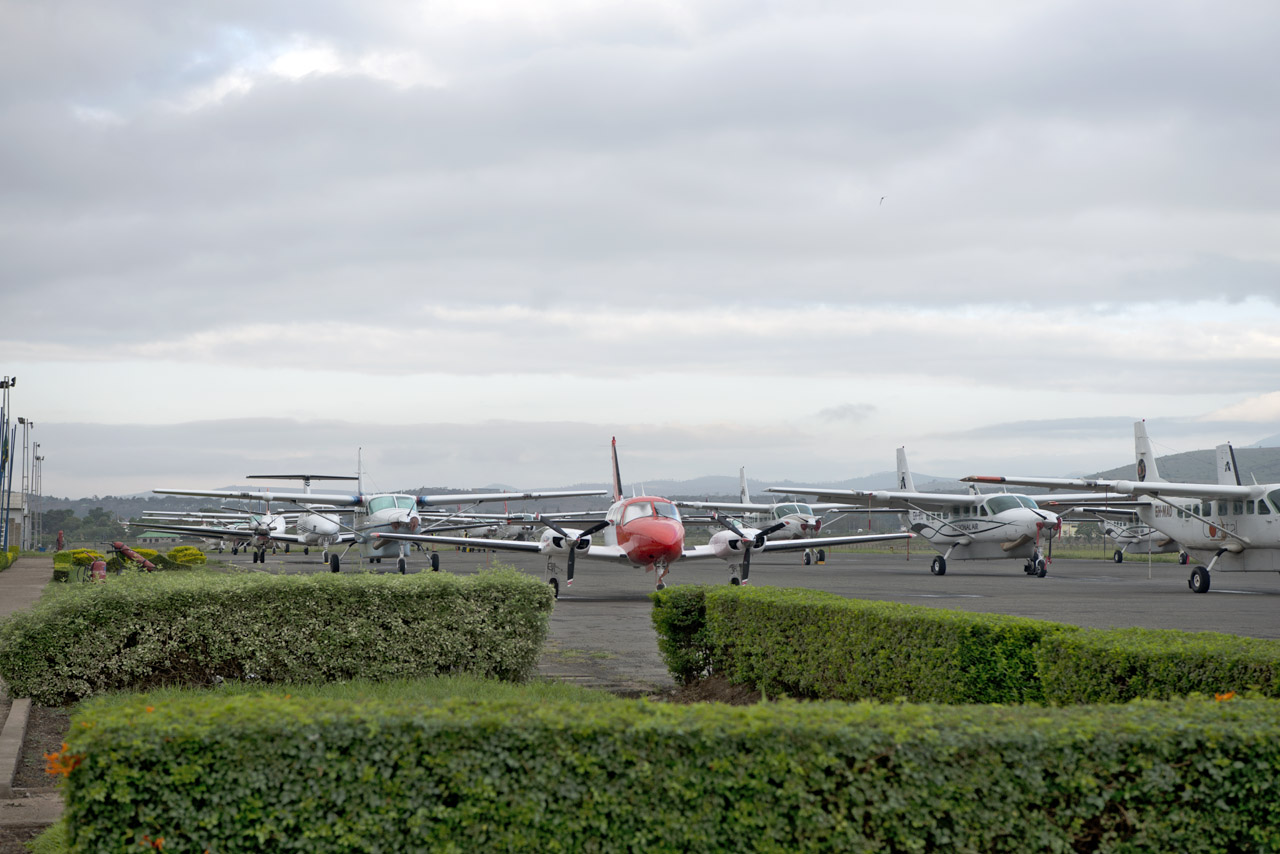
Basic Information
Individual trip with private guide and private 4x4 vehicle for Arusha - Tarangire - Manyara - Ngorongoro - Serengeti. Activities in these areas will be conducted on a private basis with your own guide and vehicle.
Duration 14 nights. Min 2 guests. Minimum age 8 years. Weight limit of luggage 20 kg. Luggage in one soft bag only.
Includes all transfers from Arusha to the hotels/camps to Arusha
- Arusha Villa: Standard Room. Breakfast.
- Tarangire Ndovu Lodge: Standard Room. All meals.
- Lake Natron Camp: Standard Room. All meals, drinks (except premier brands).
- Ziwani Lodge: Standard Room. All meals, drinks (excl. premier brands).
- The Highlands: Dome Tent. All meals, drinks (except premier brands), laundry service.
- Olmara Camp: Standard Room. All meals, drinks (except premier brands), laundry service.
- Serian's Lamai Camp: Standard Room. All meals, drinks (except premier brands), laundry service, private vehicle / guide provided by the lodge.
Learn more about these areas













